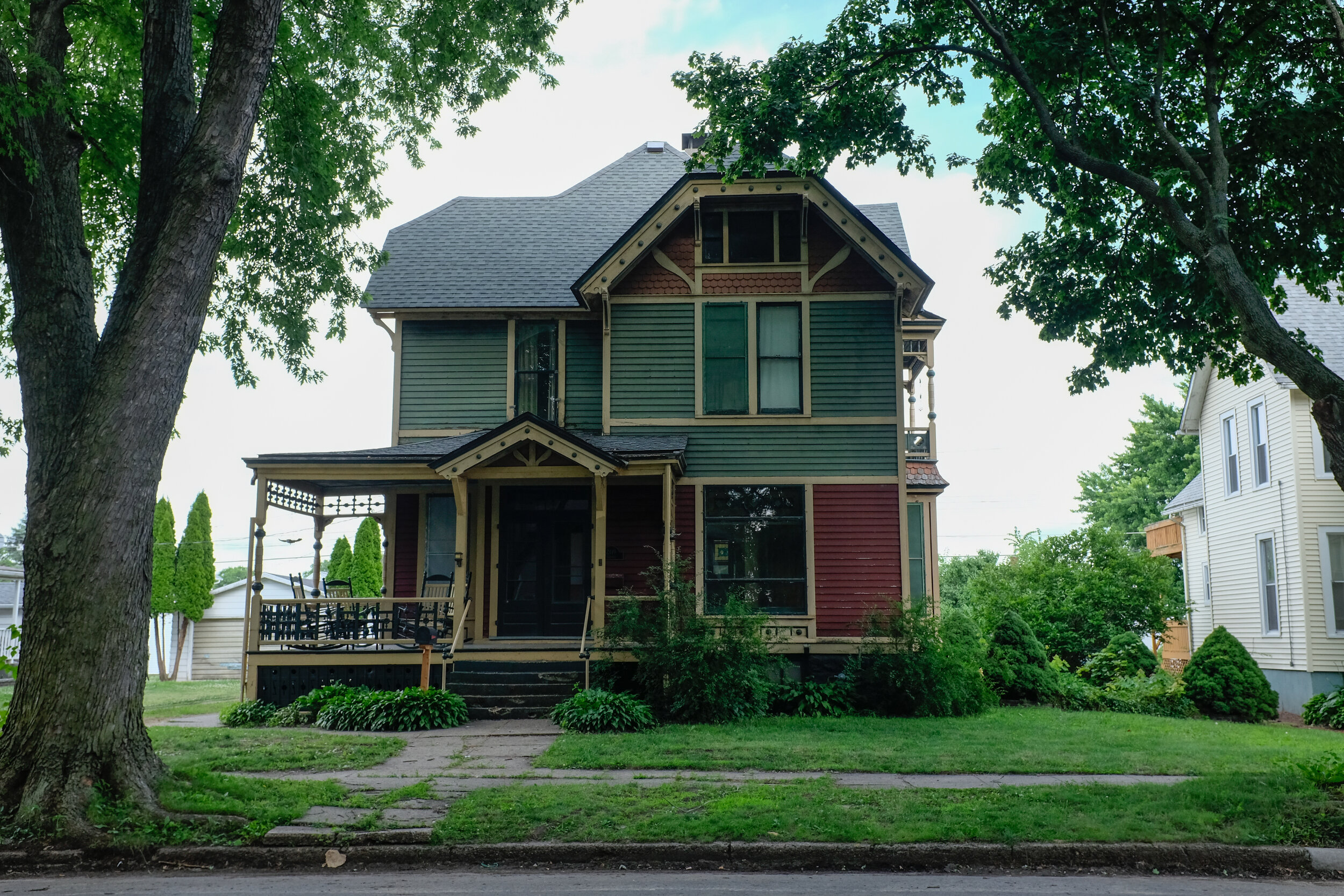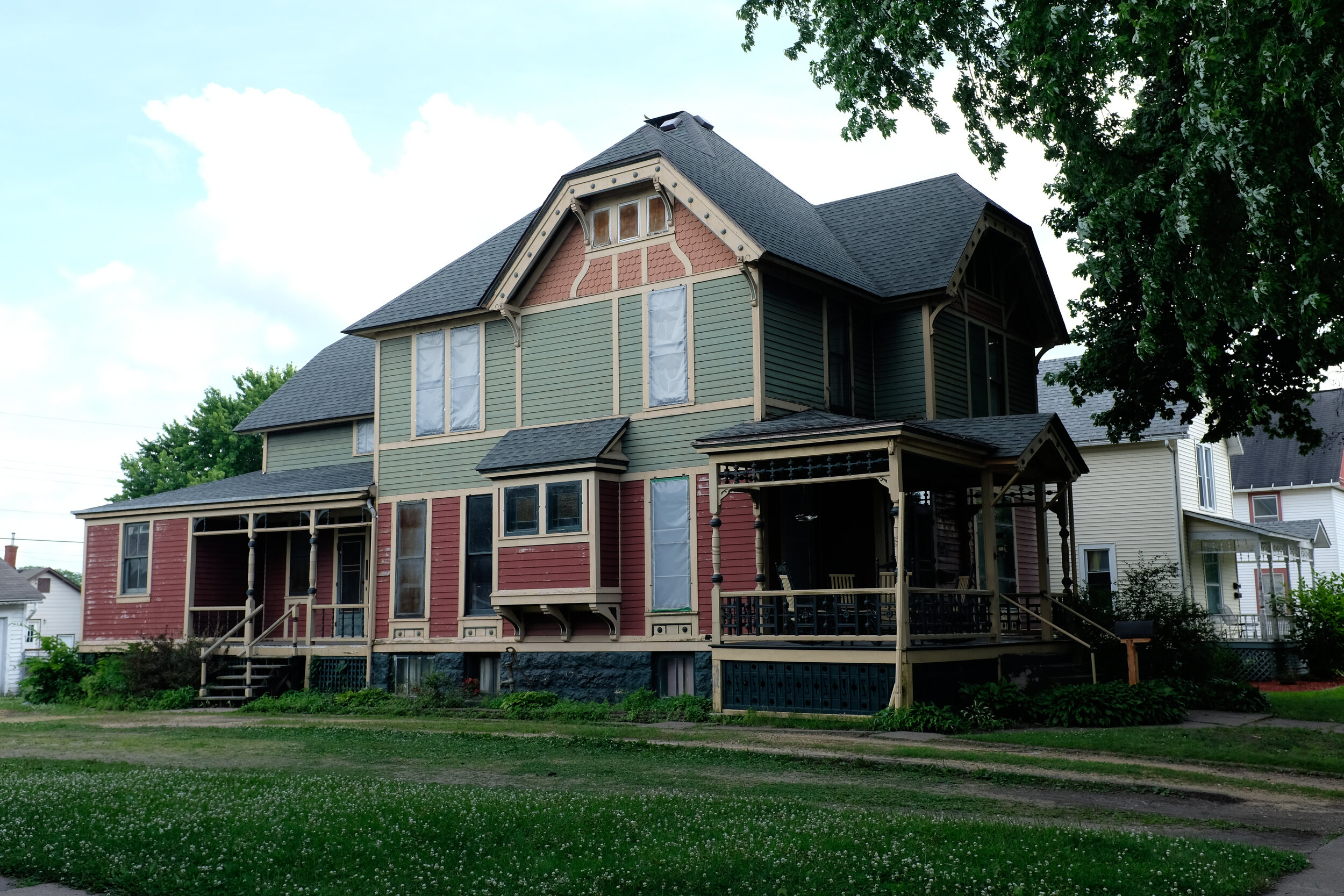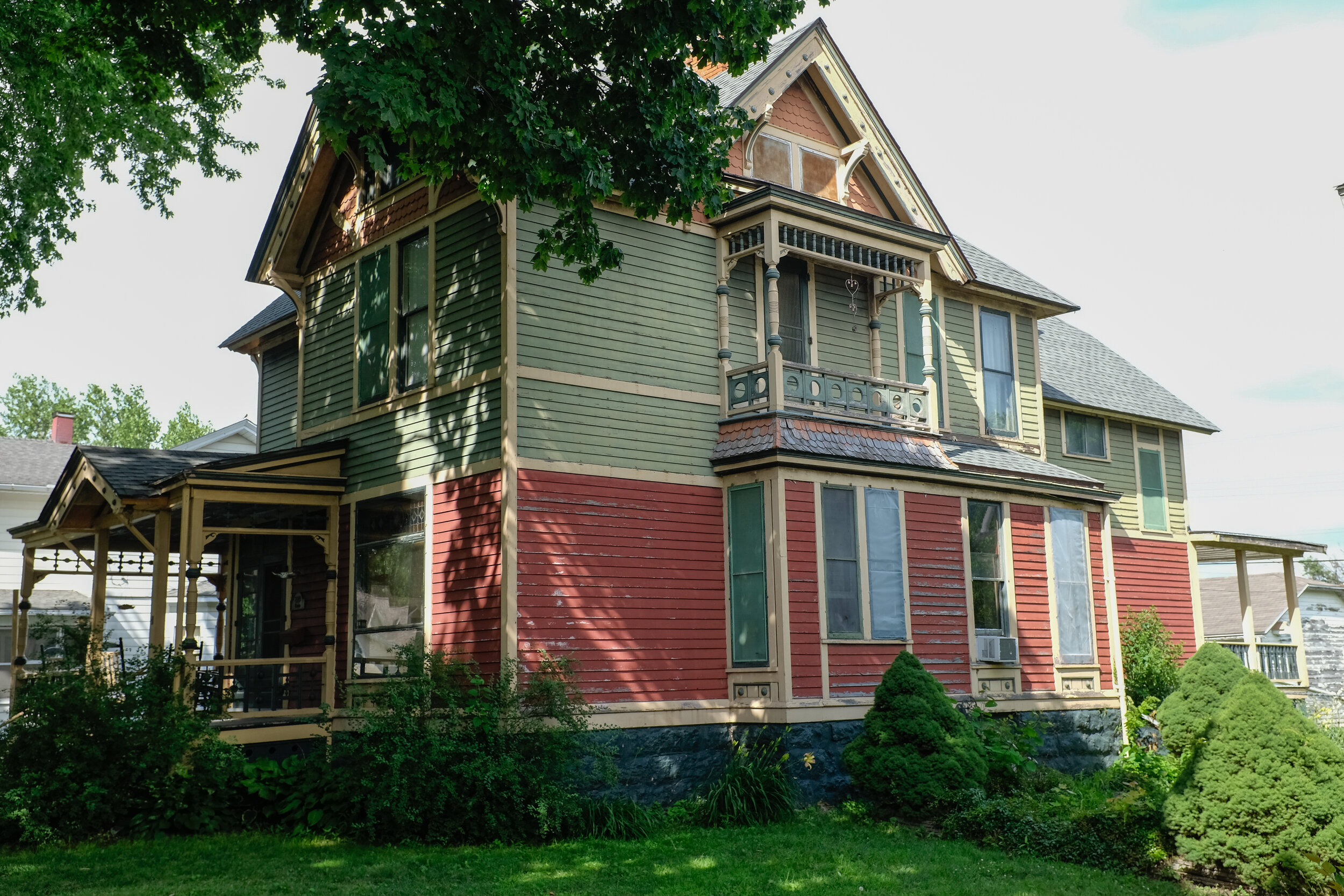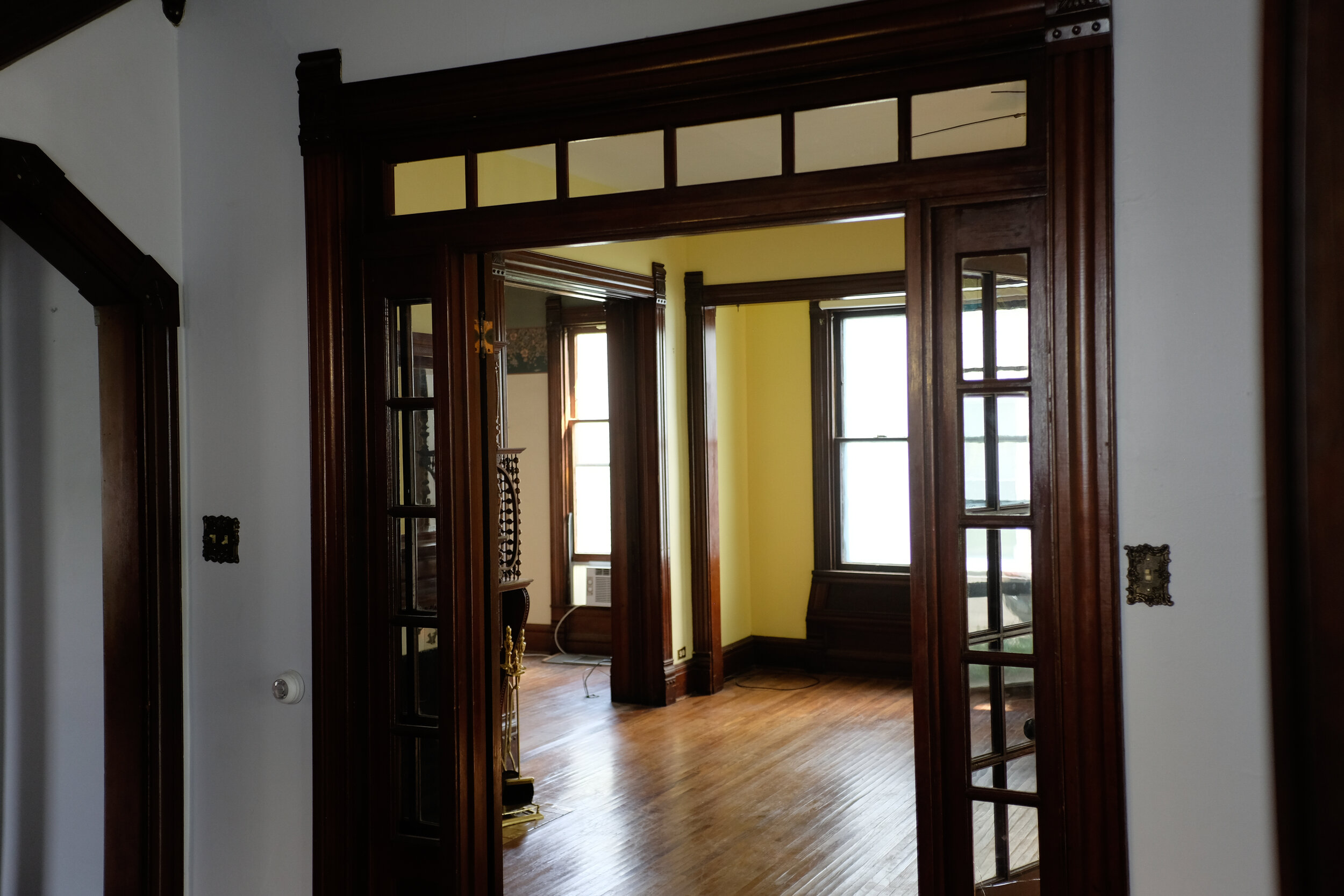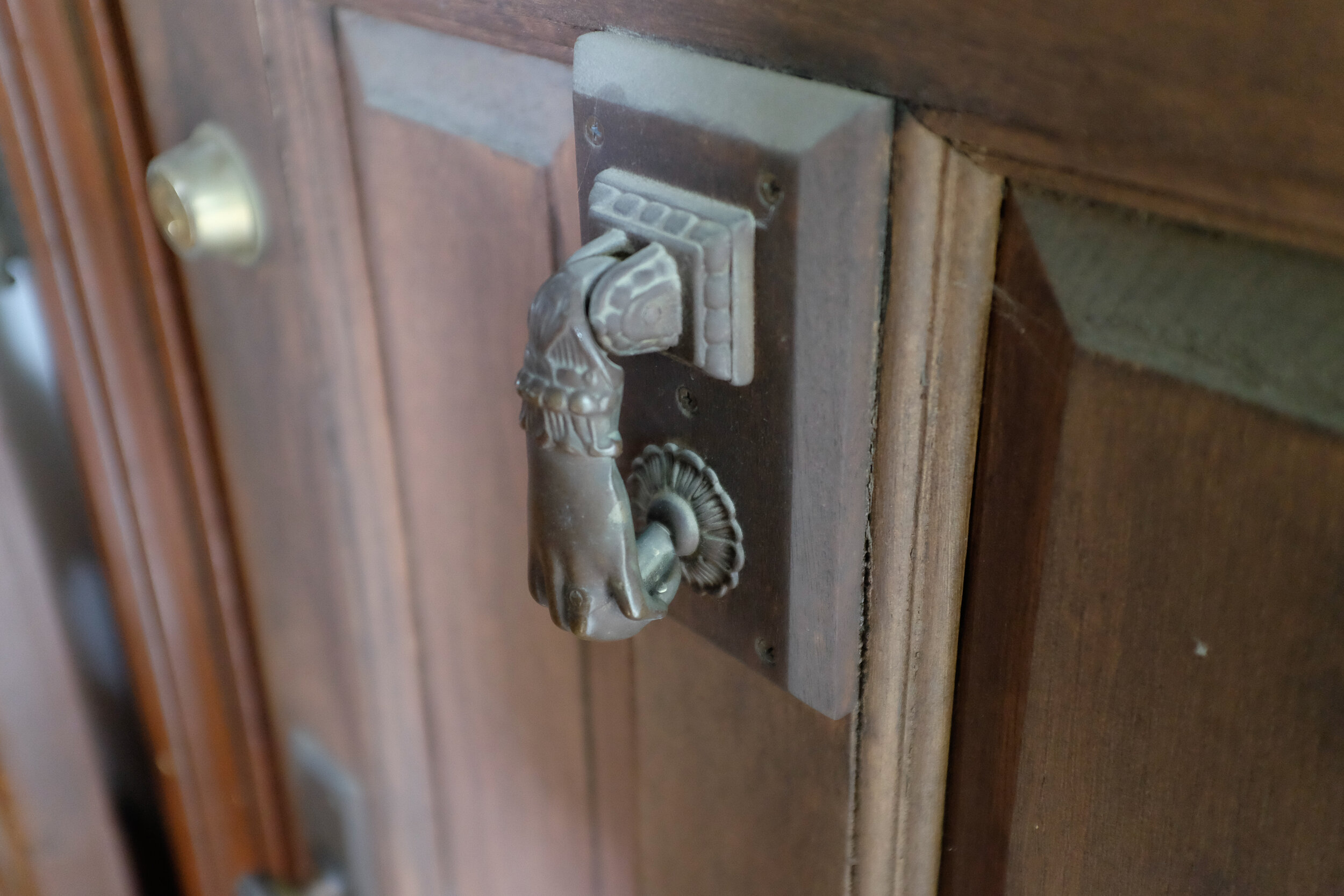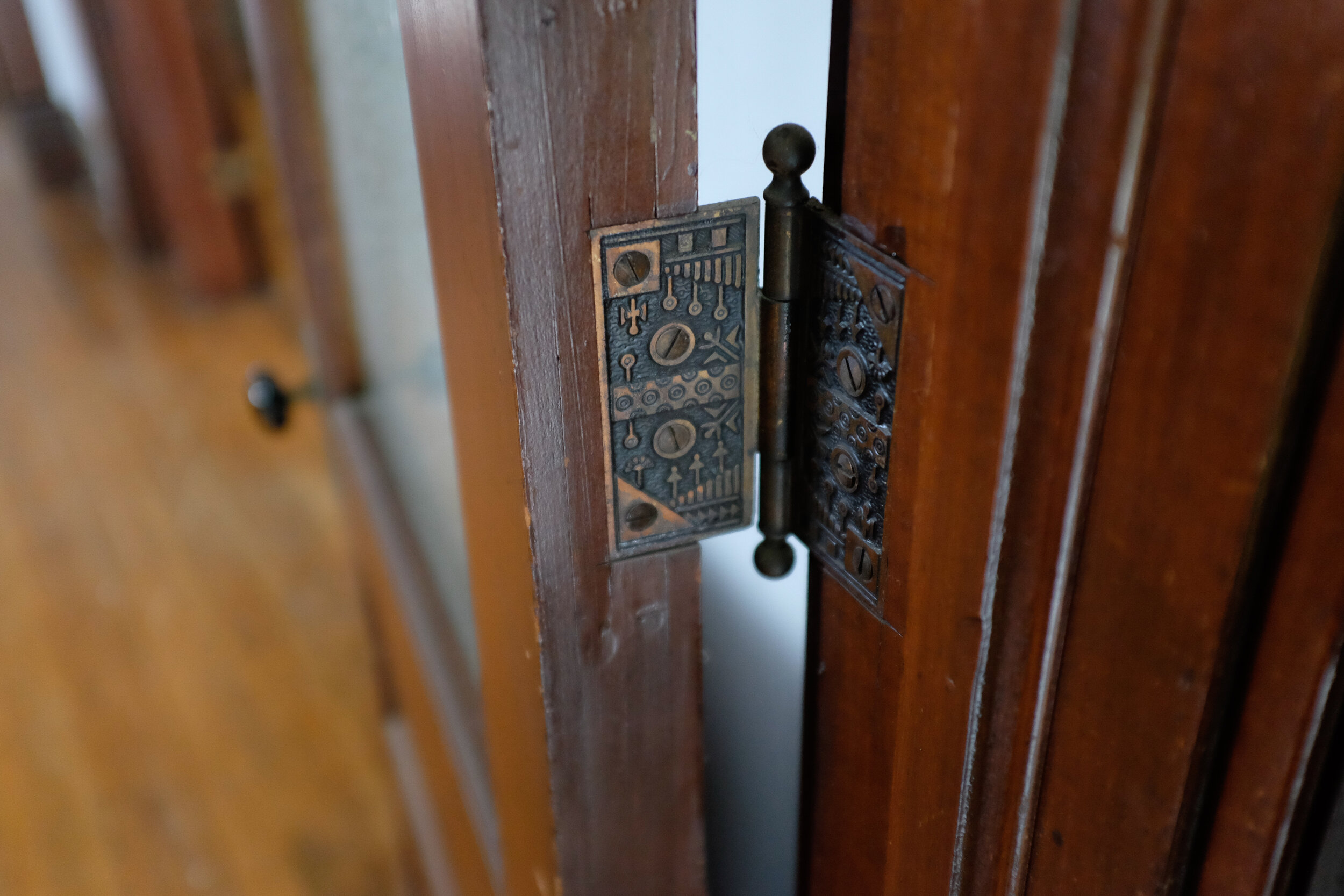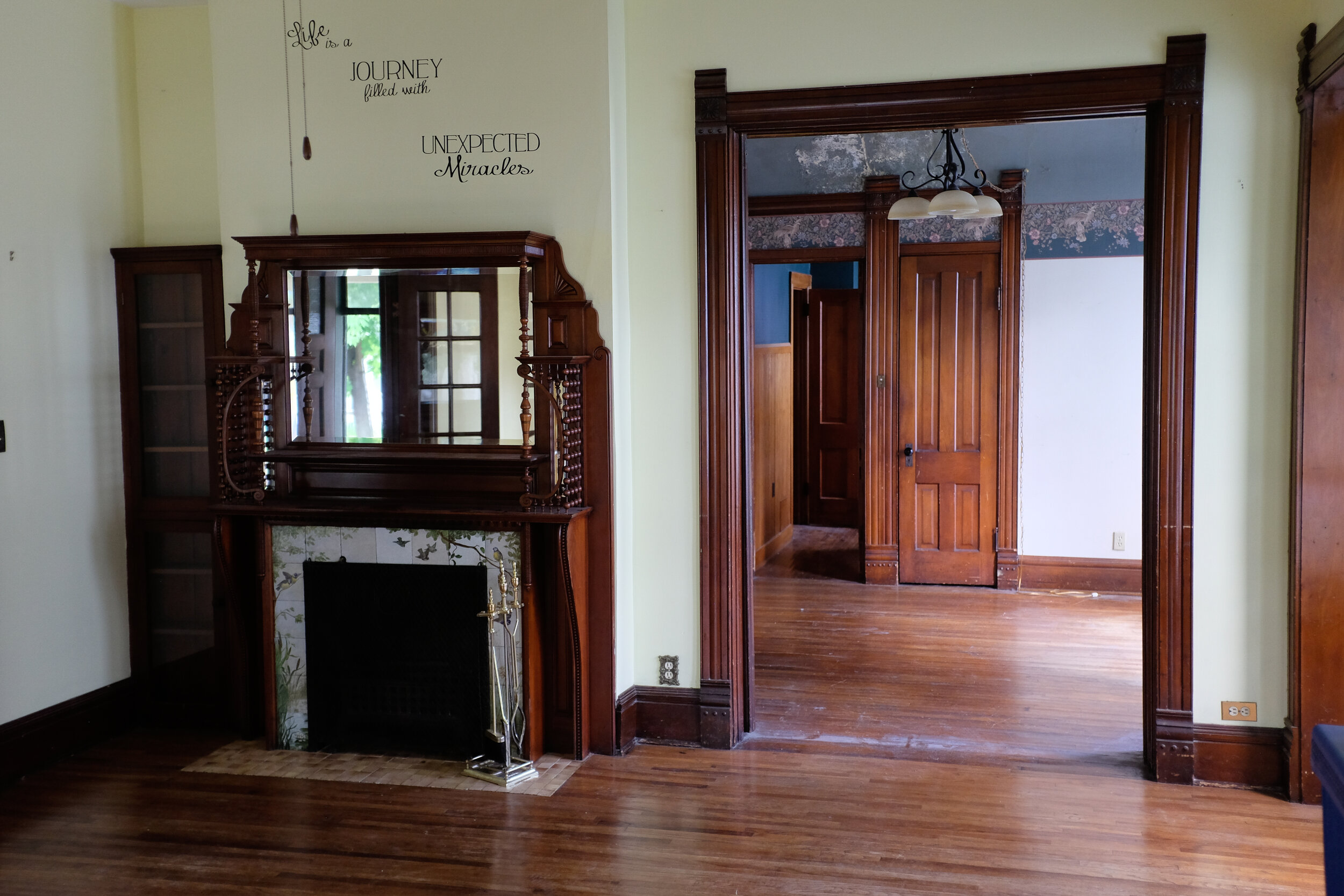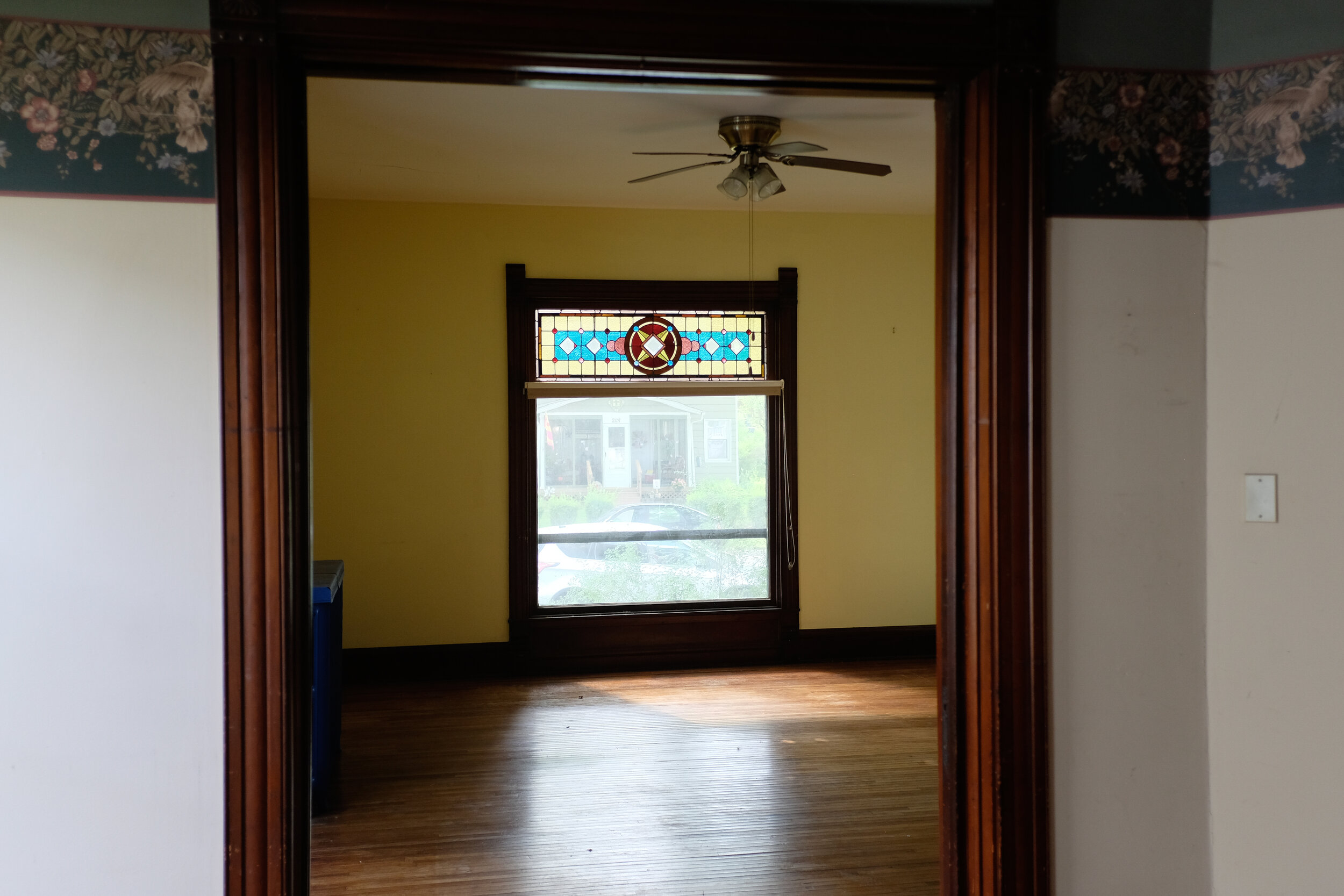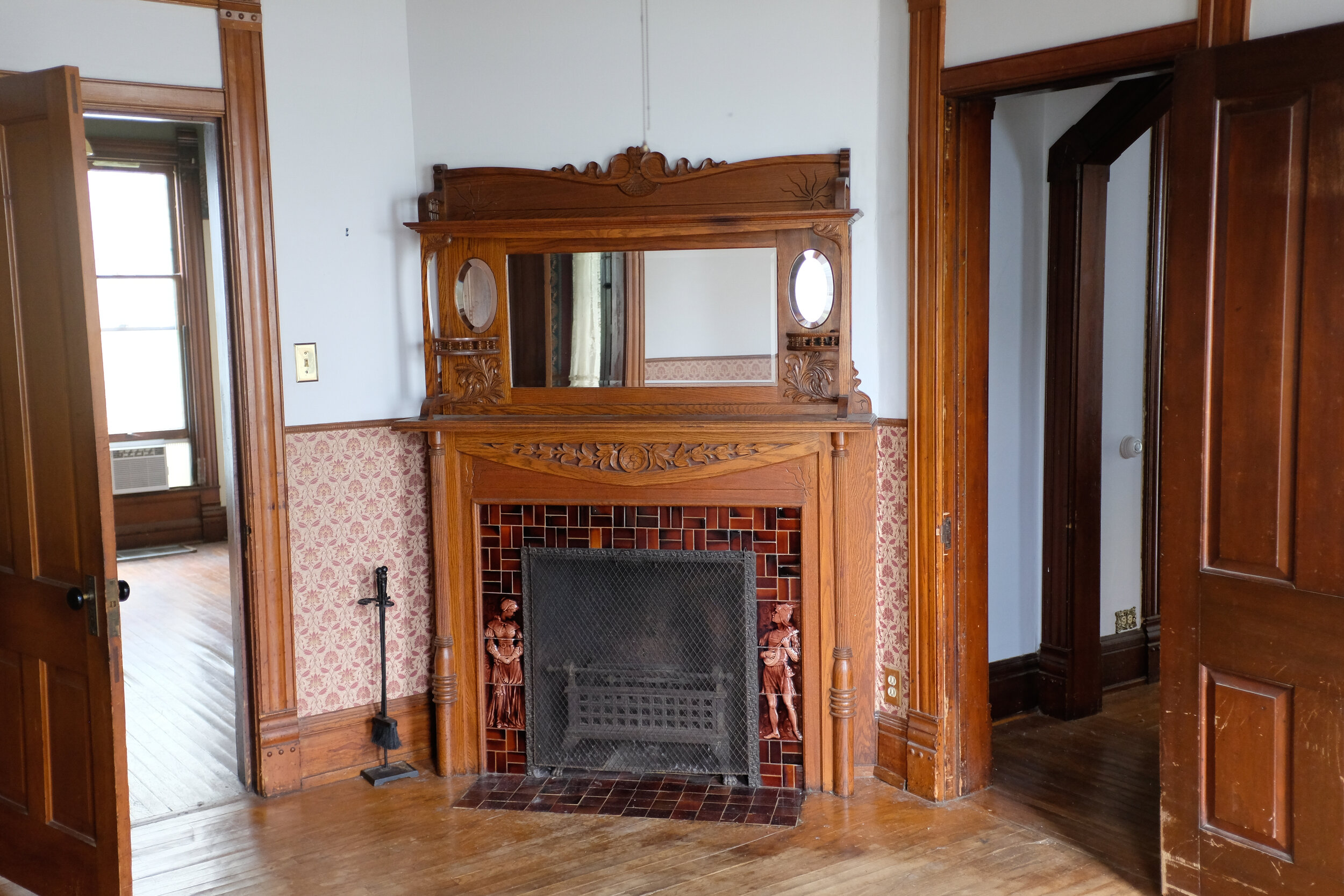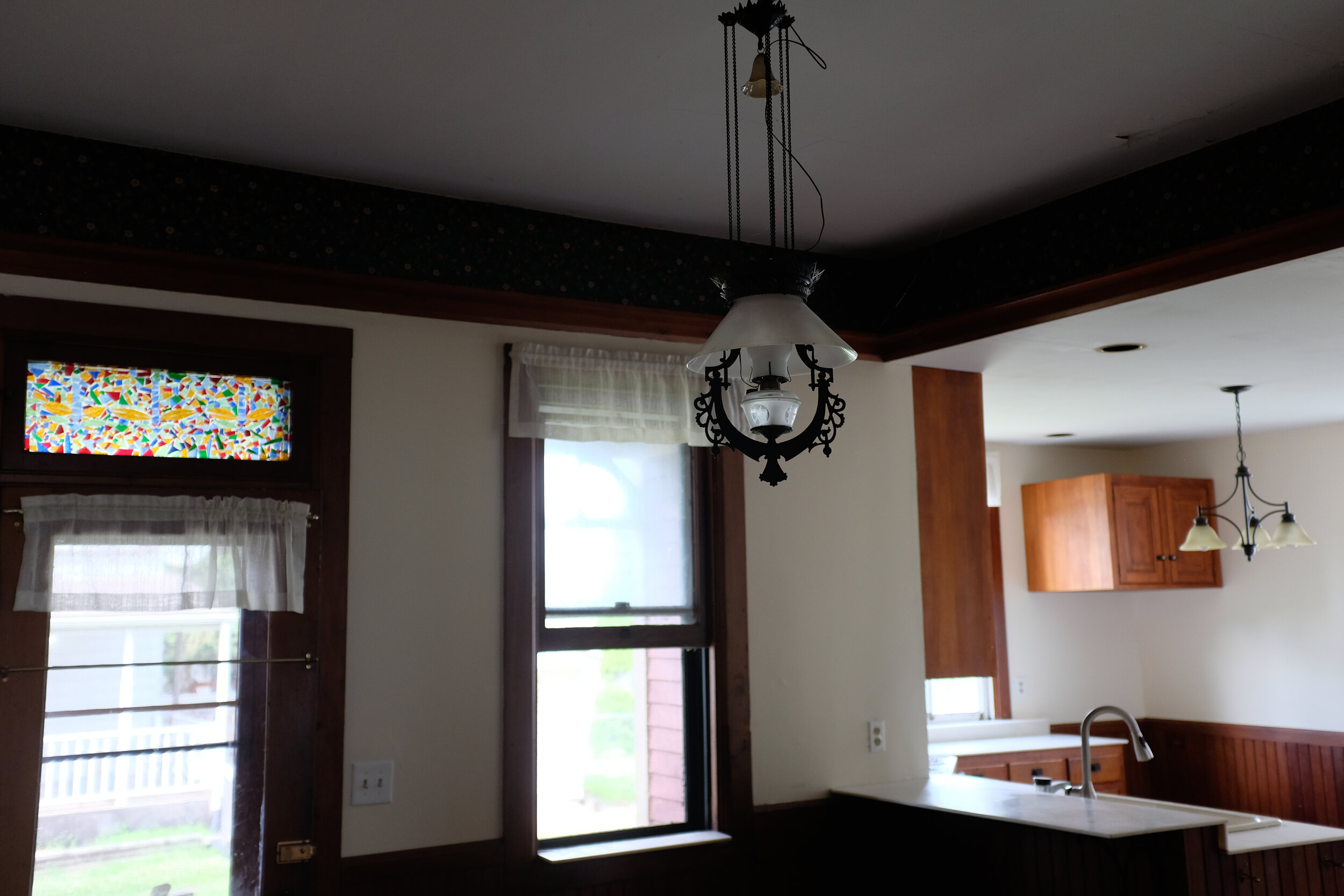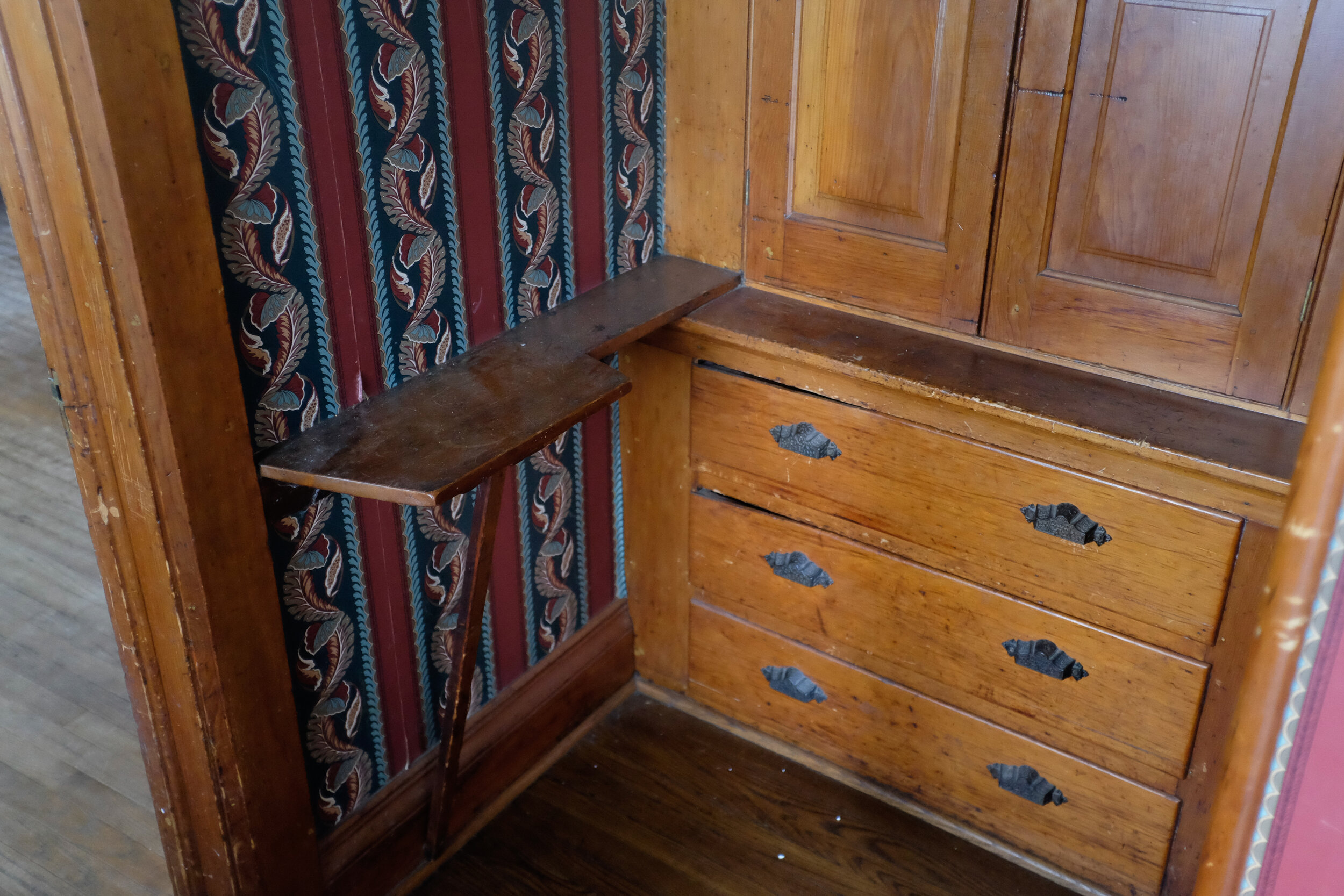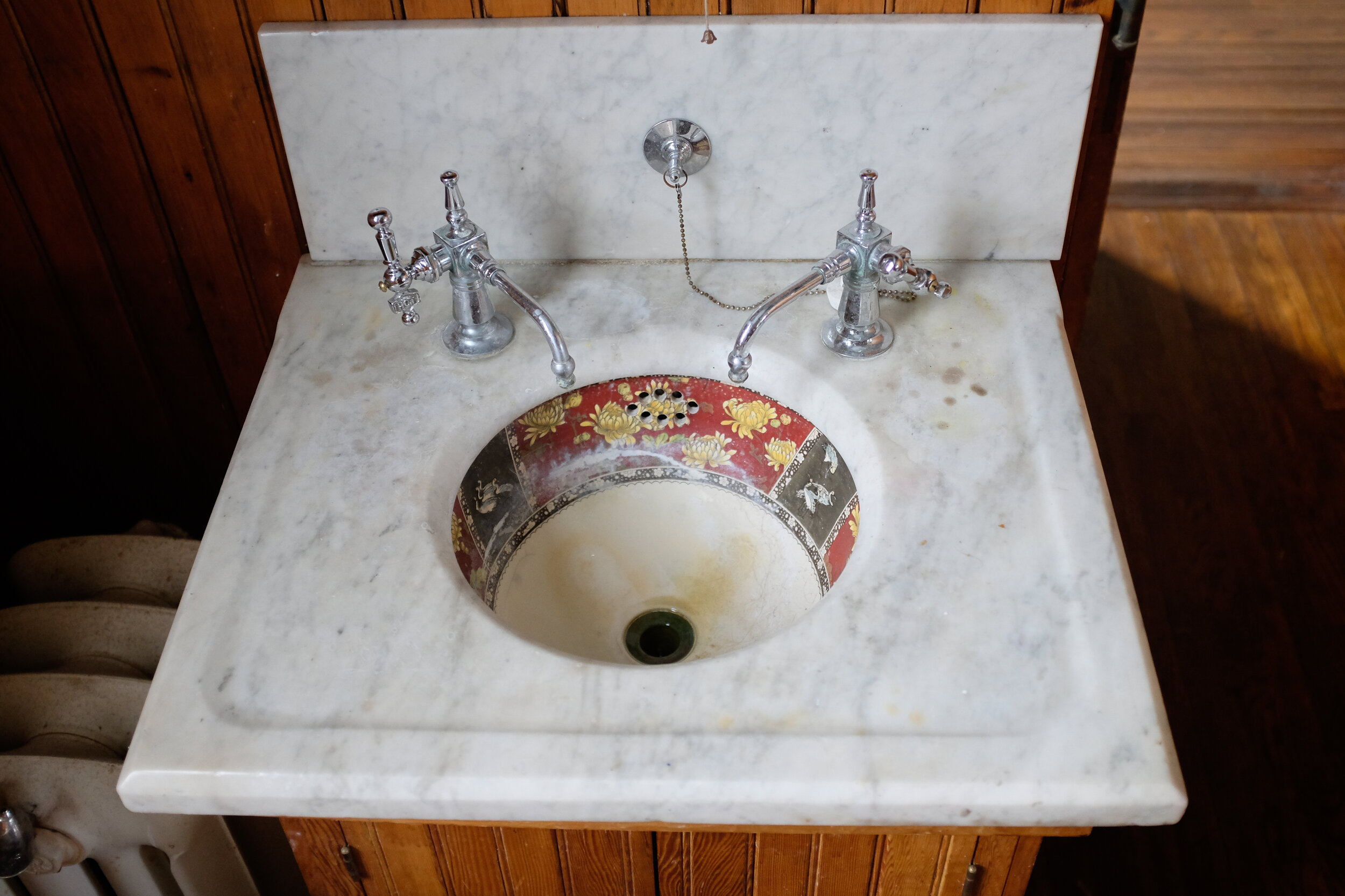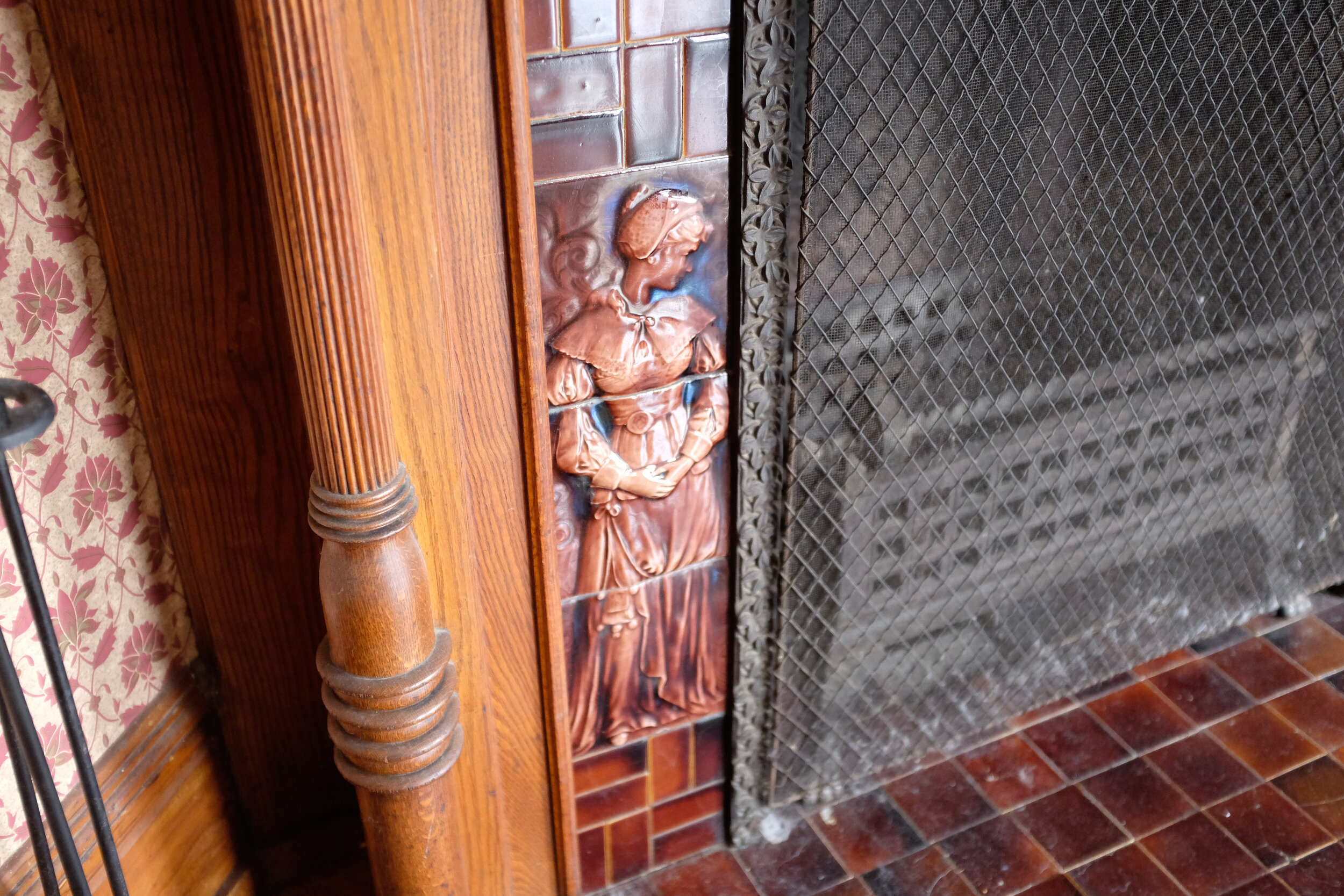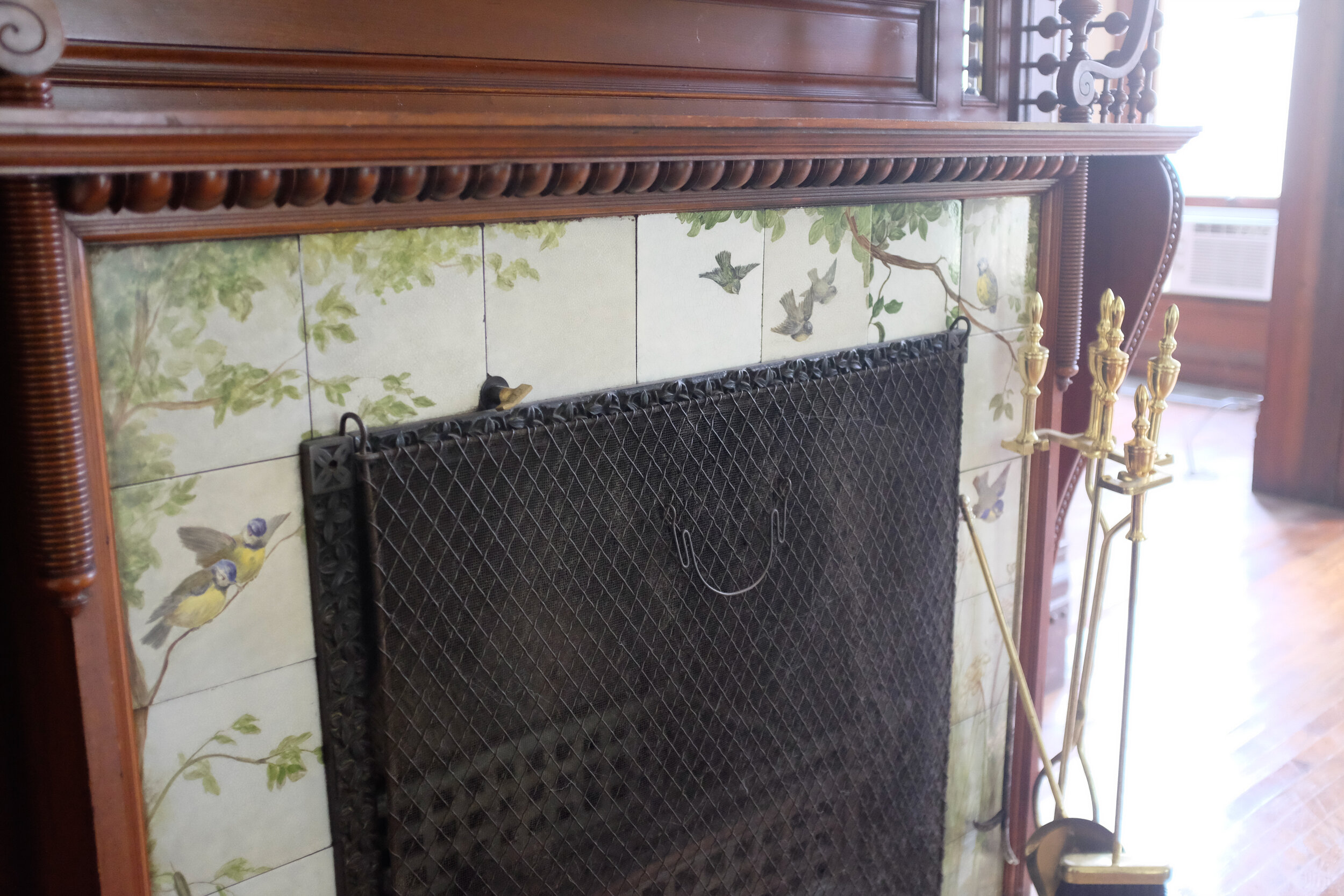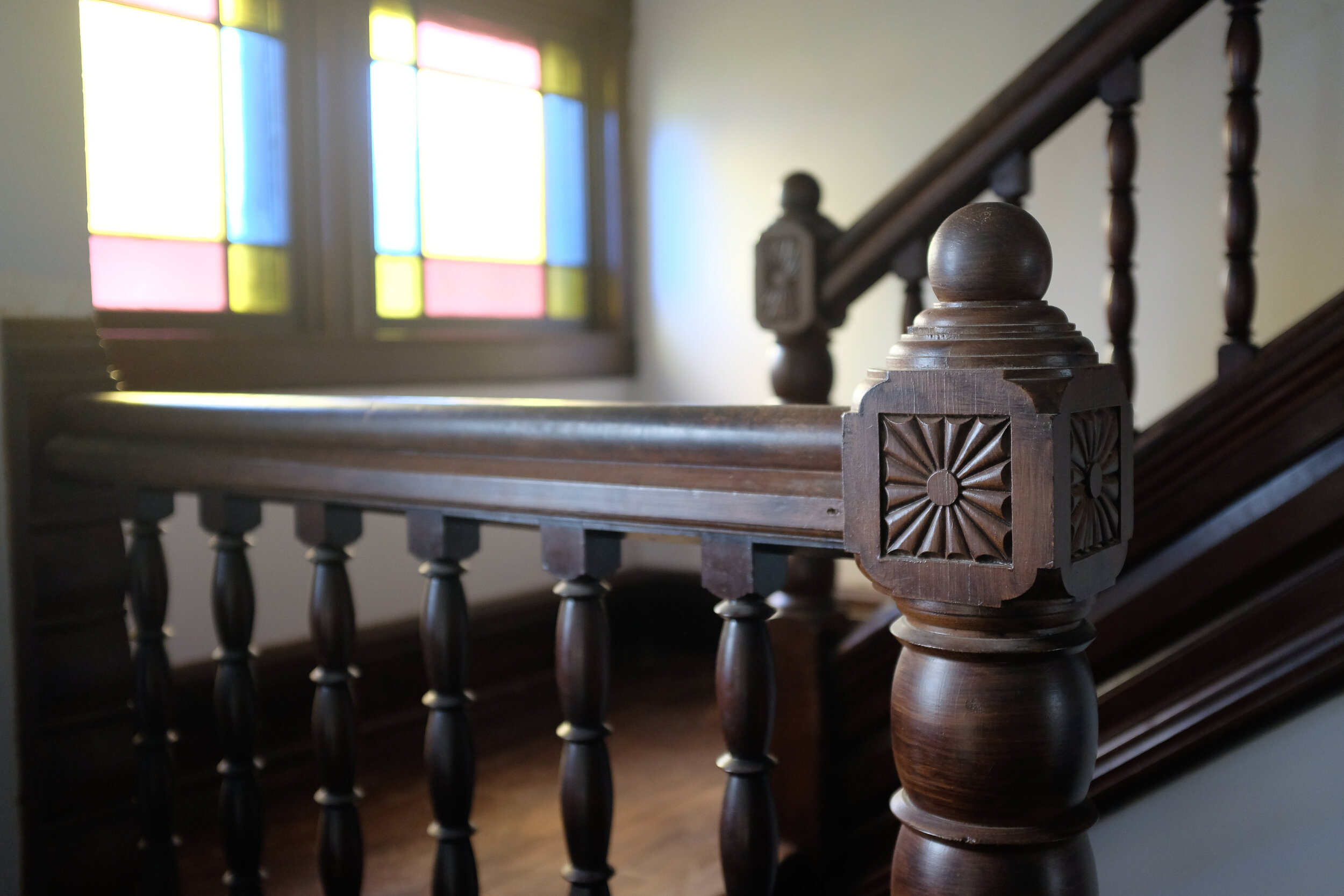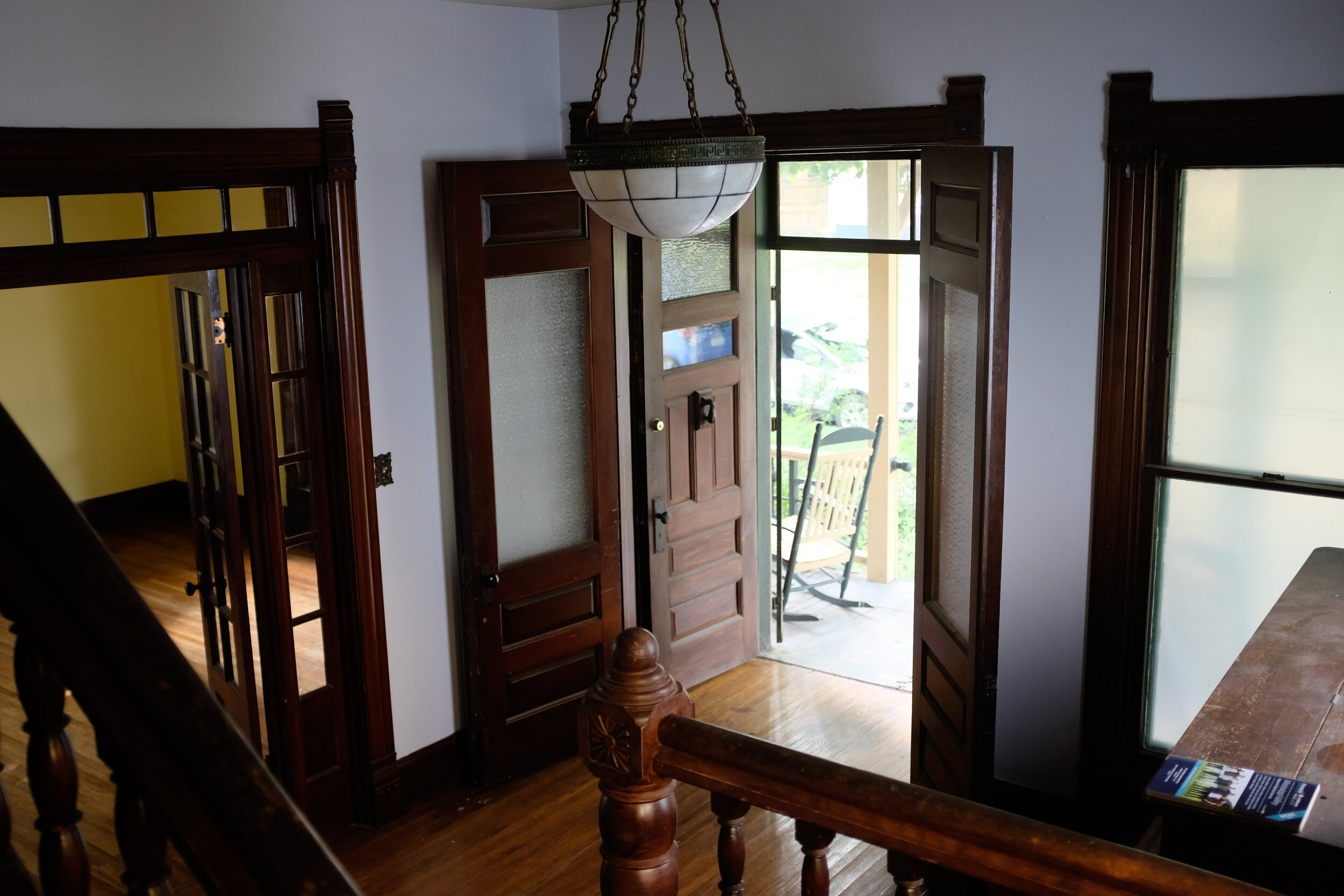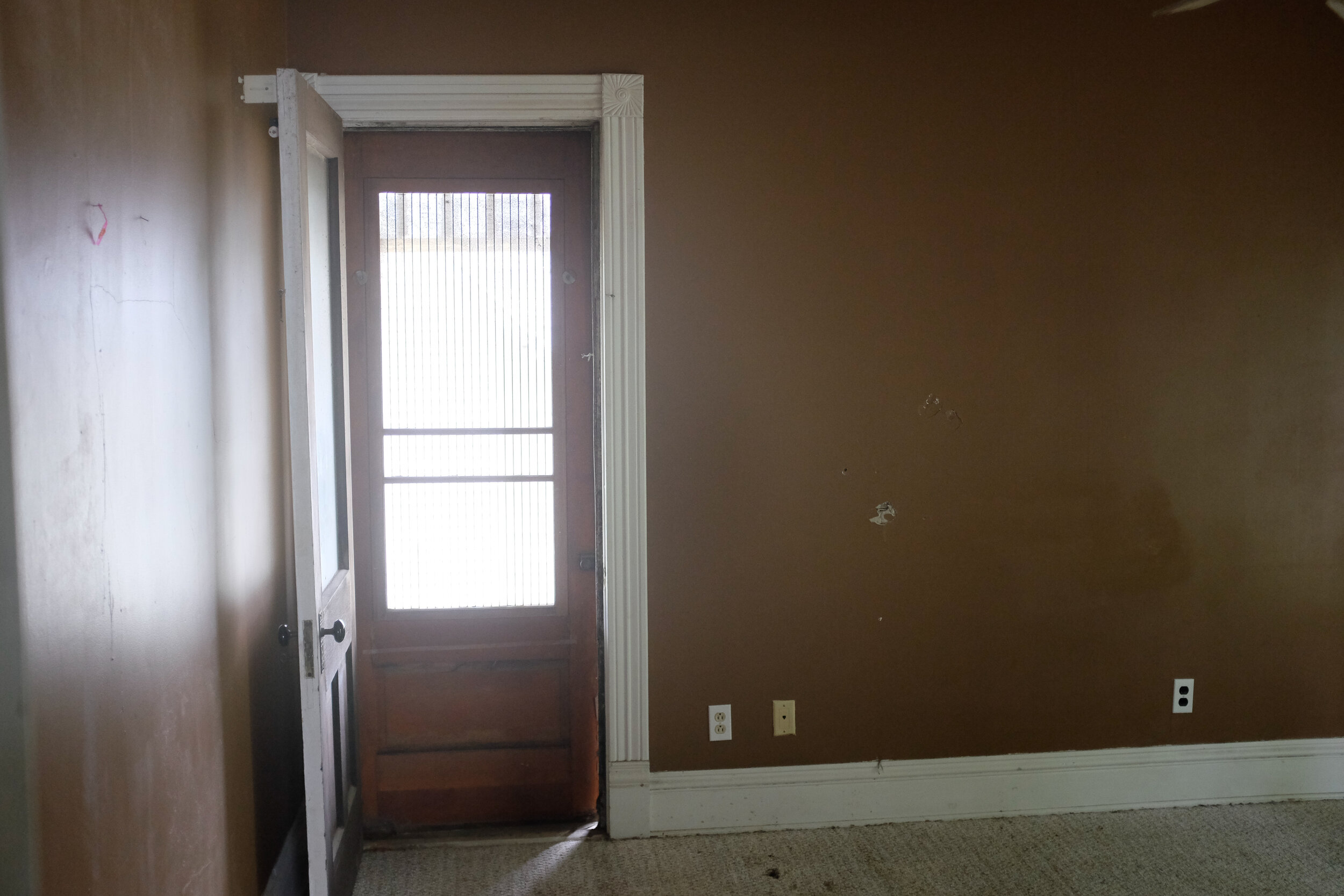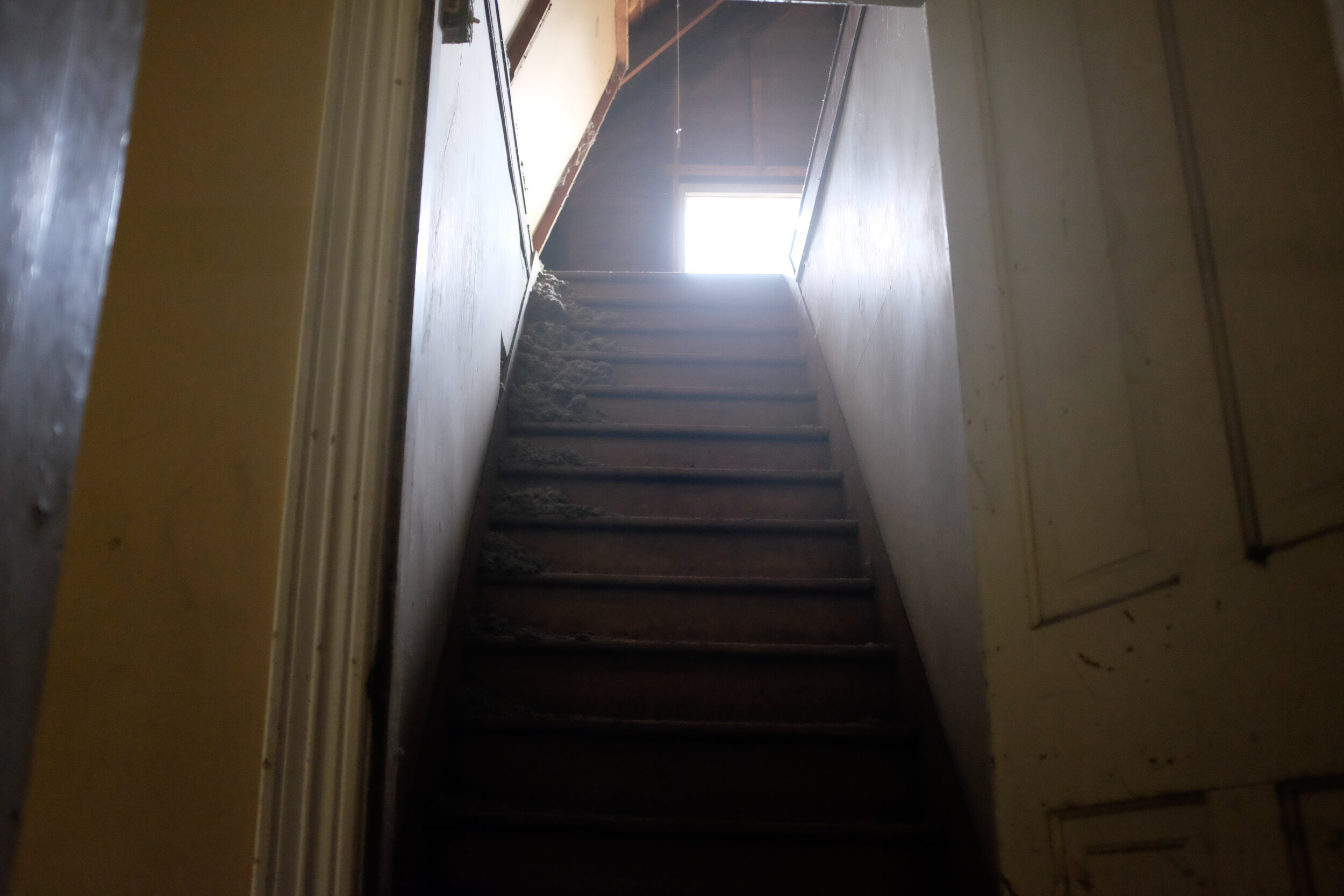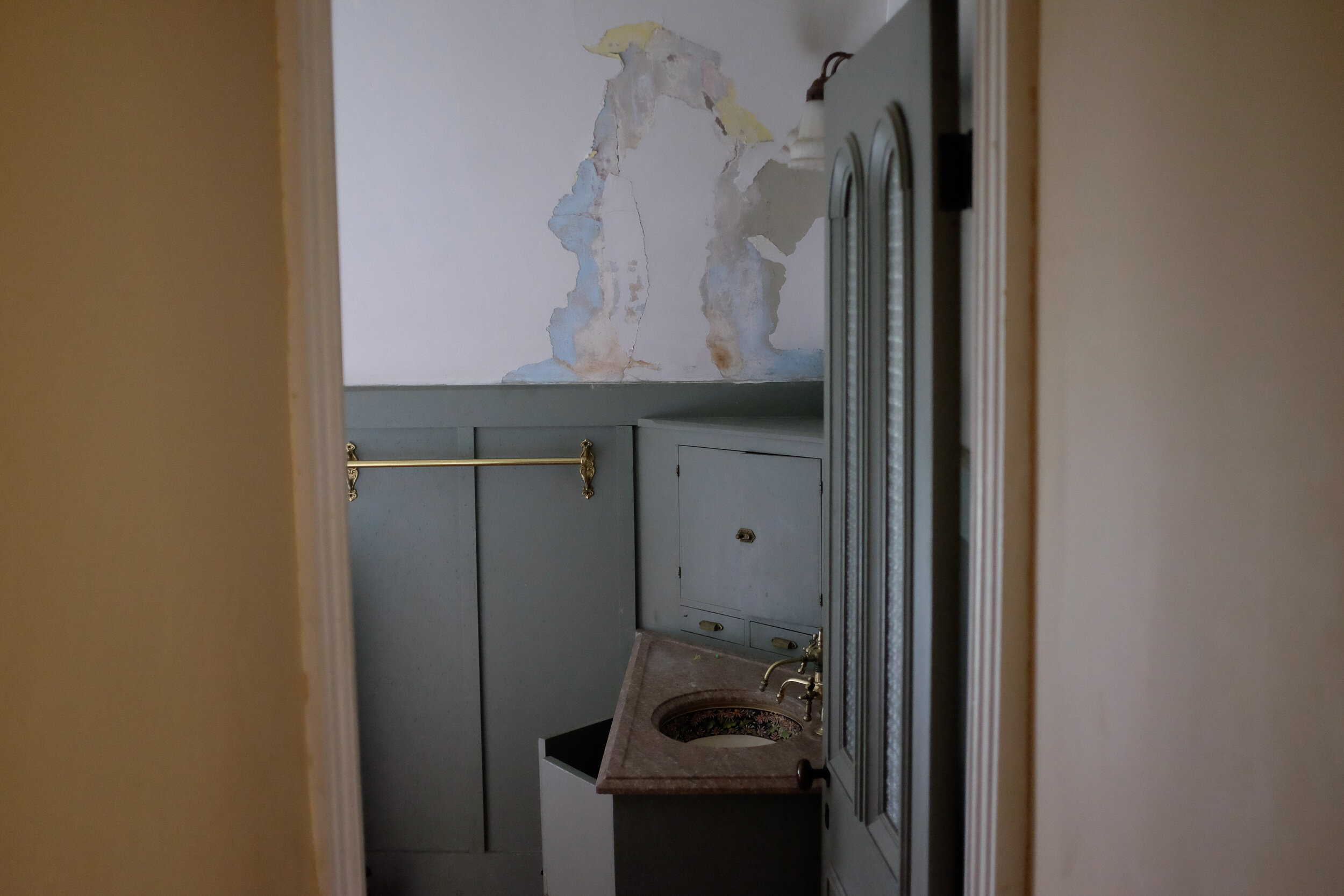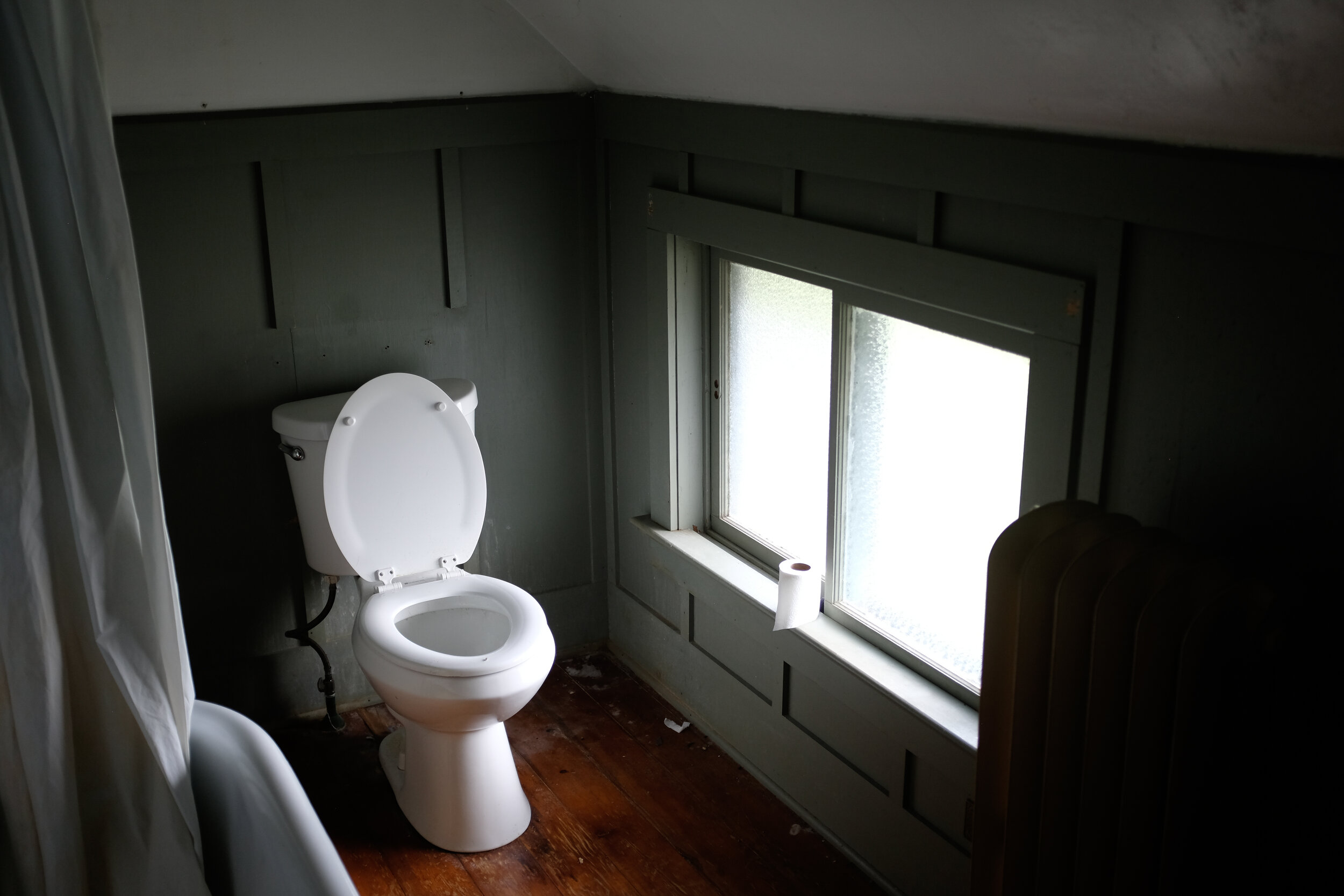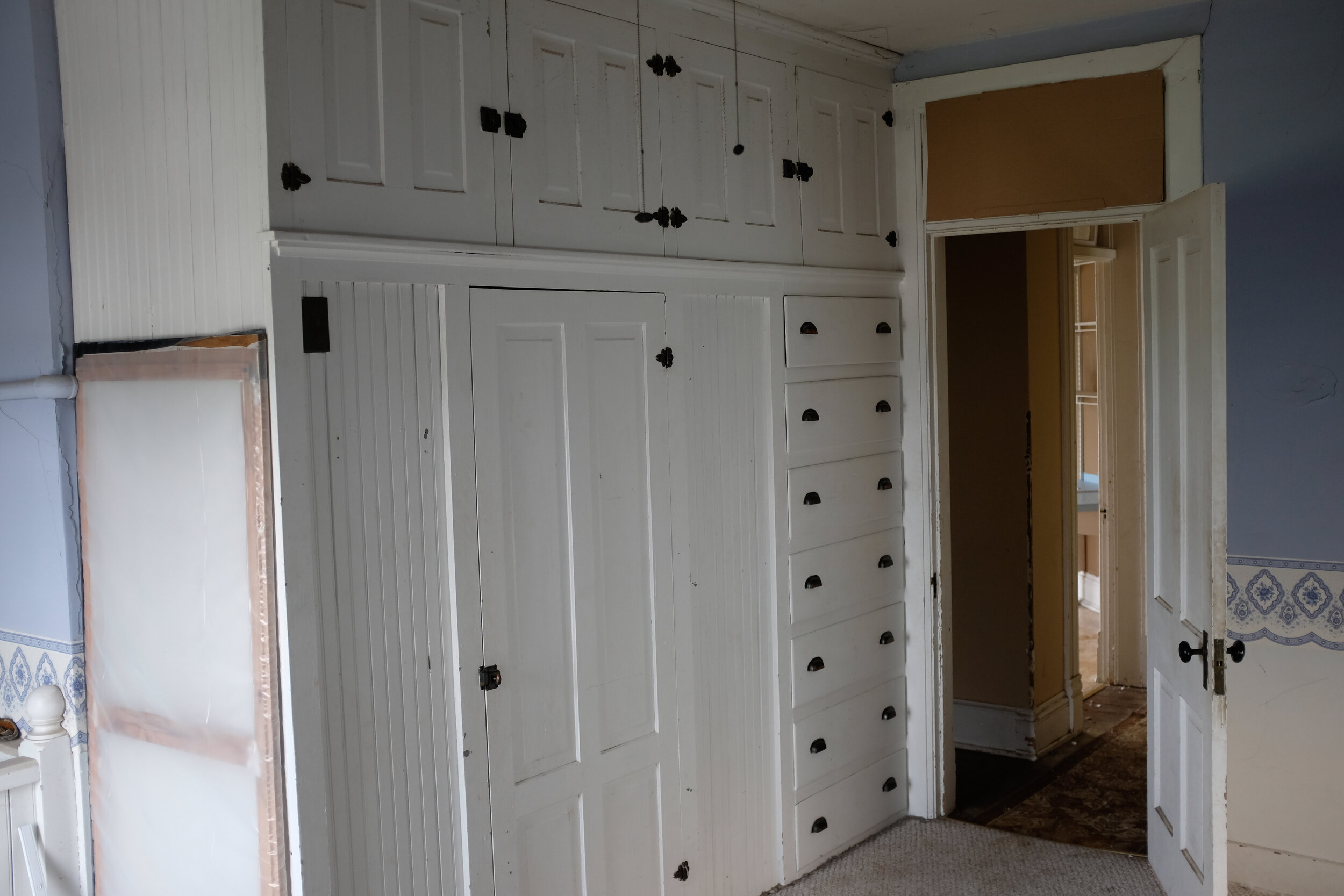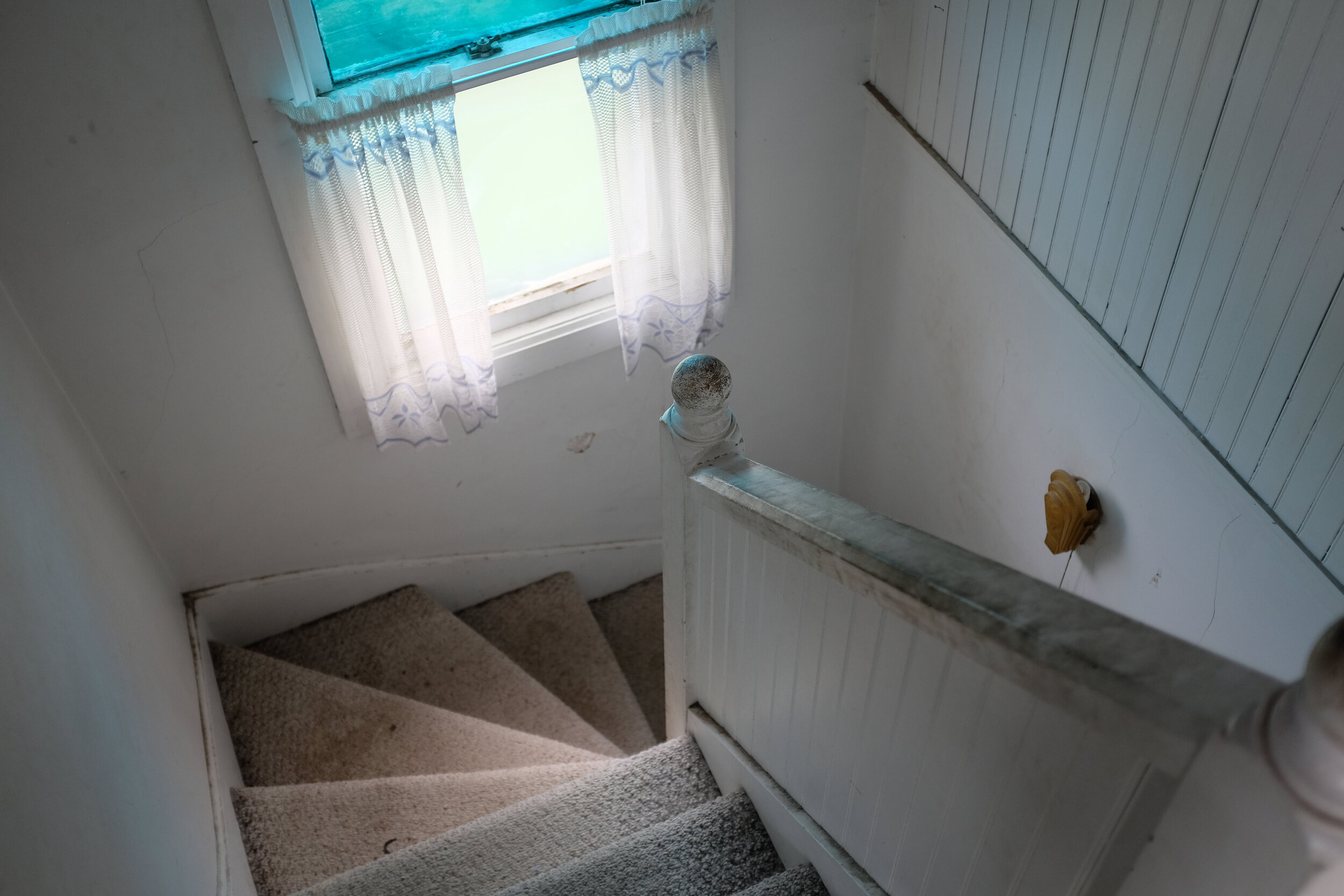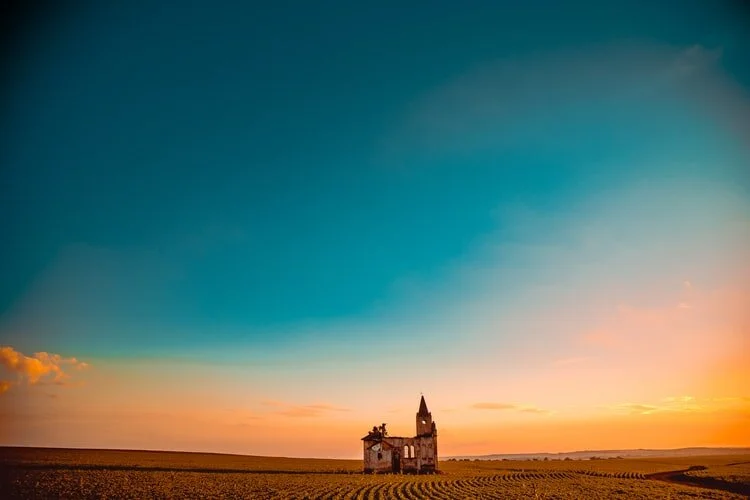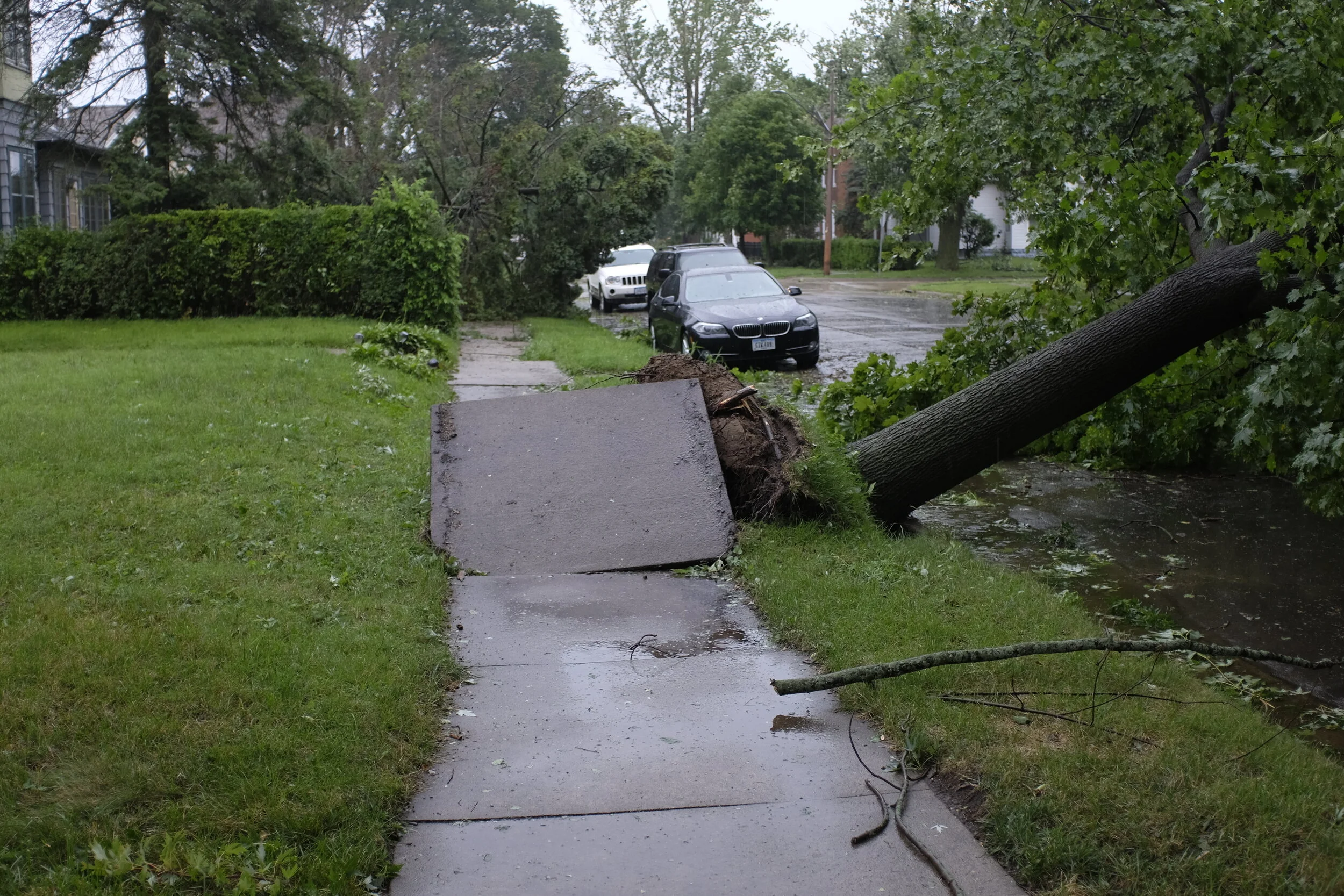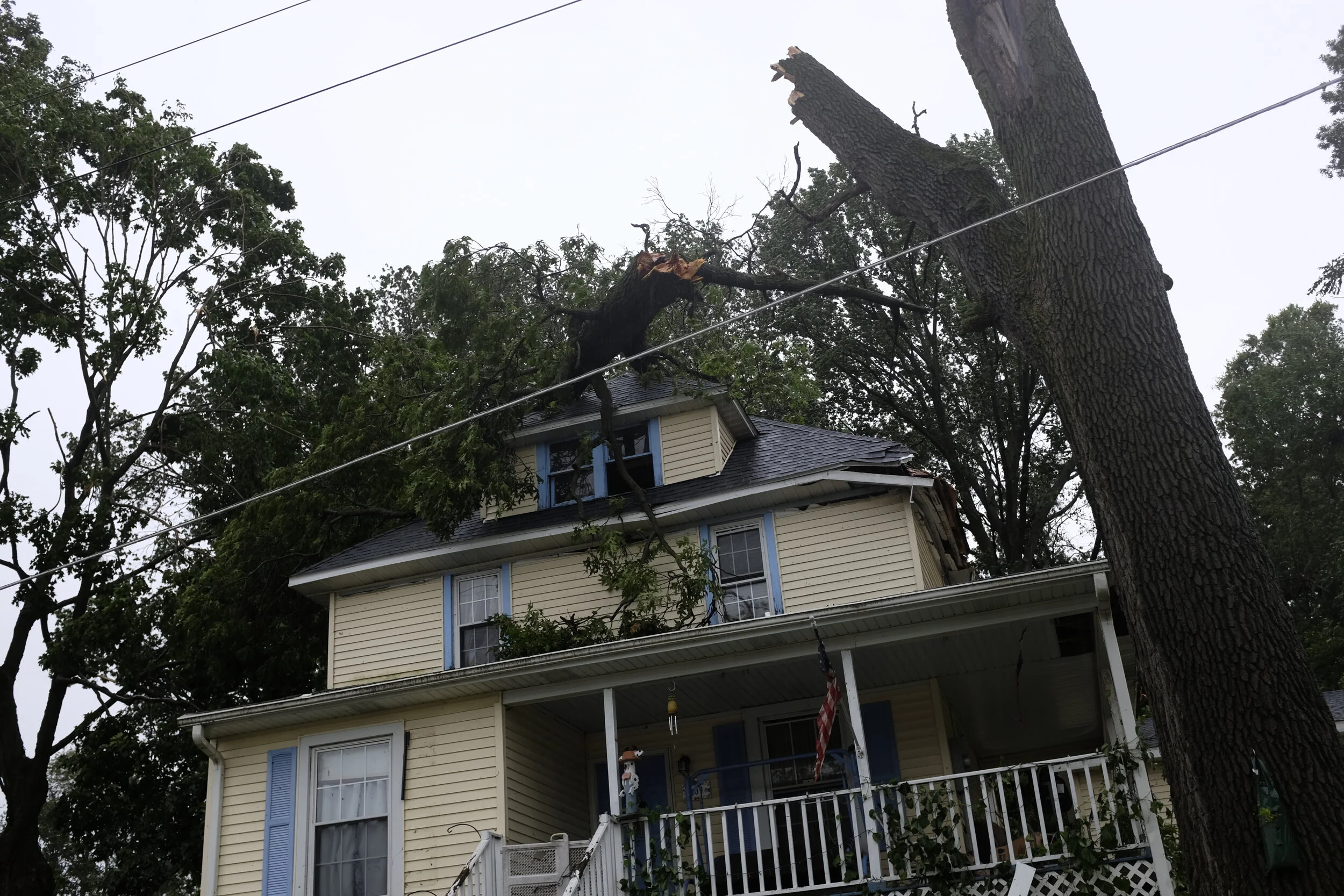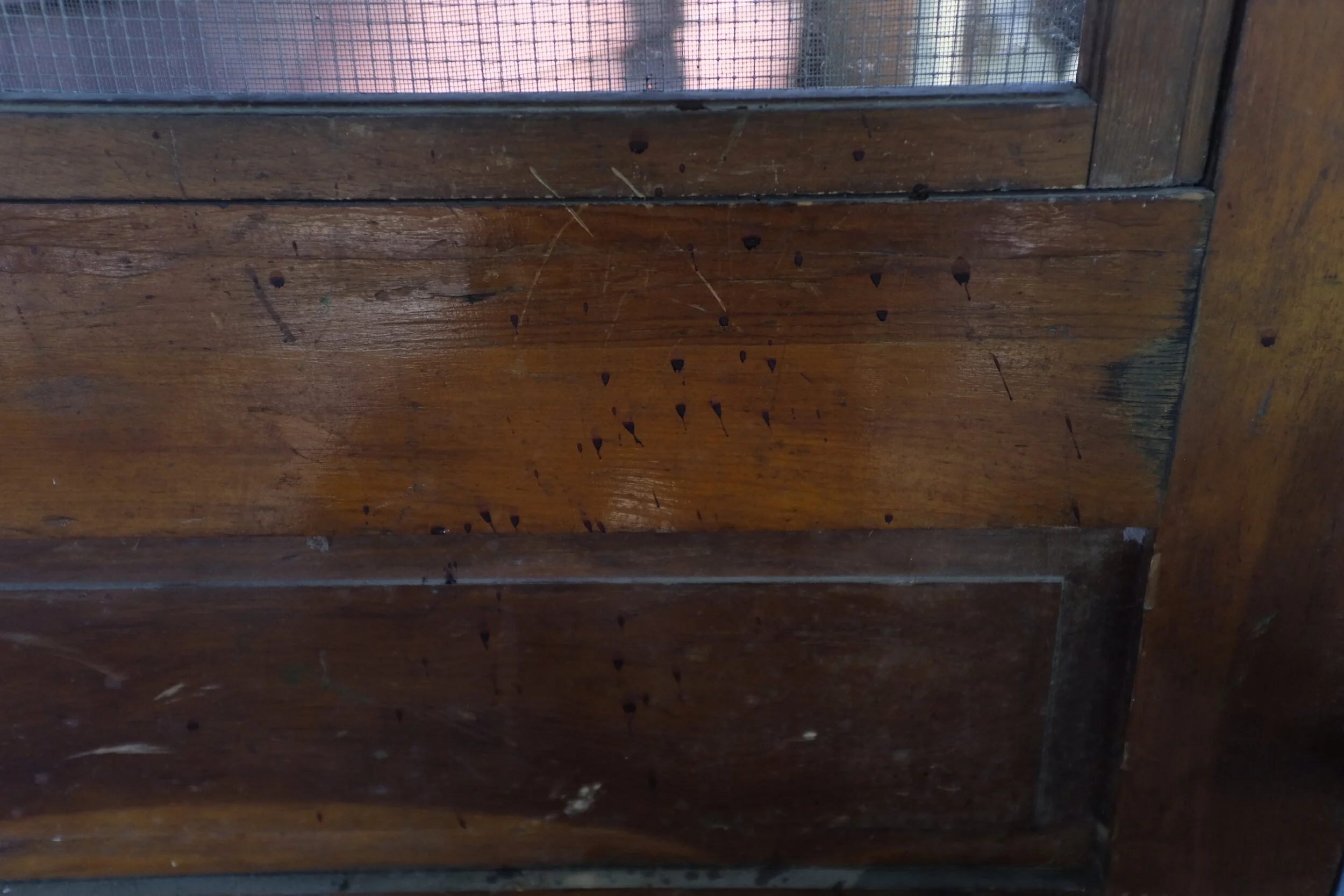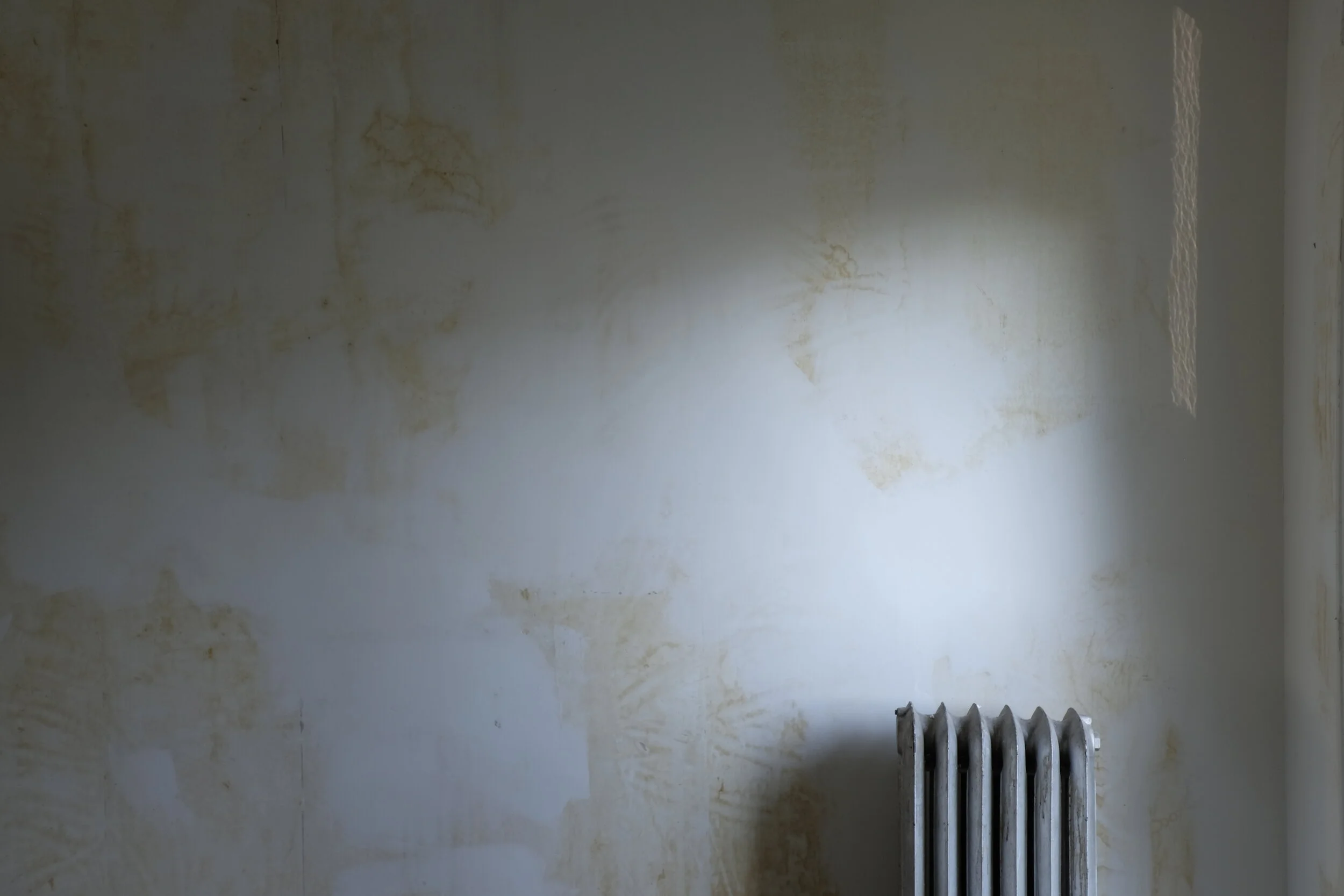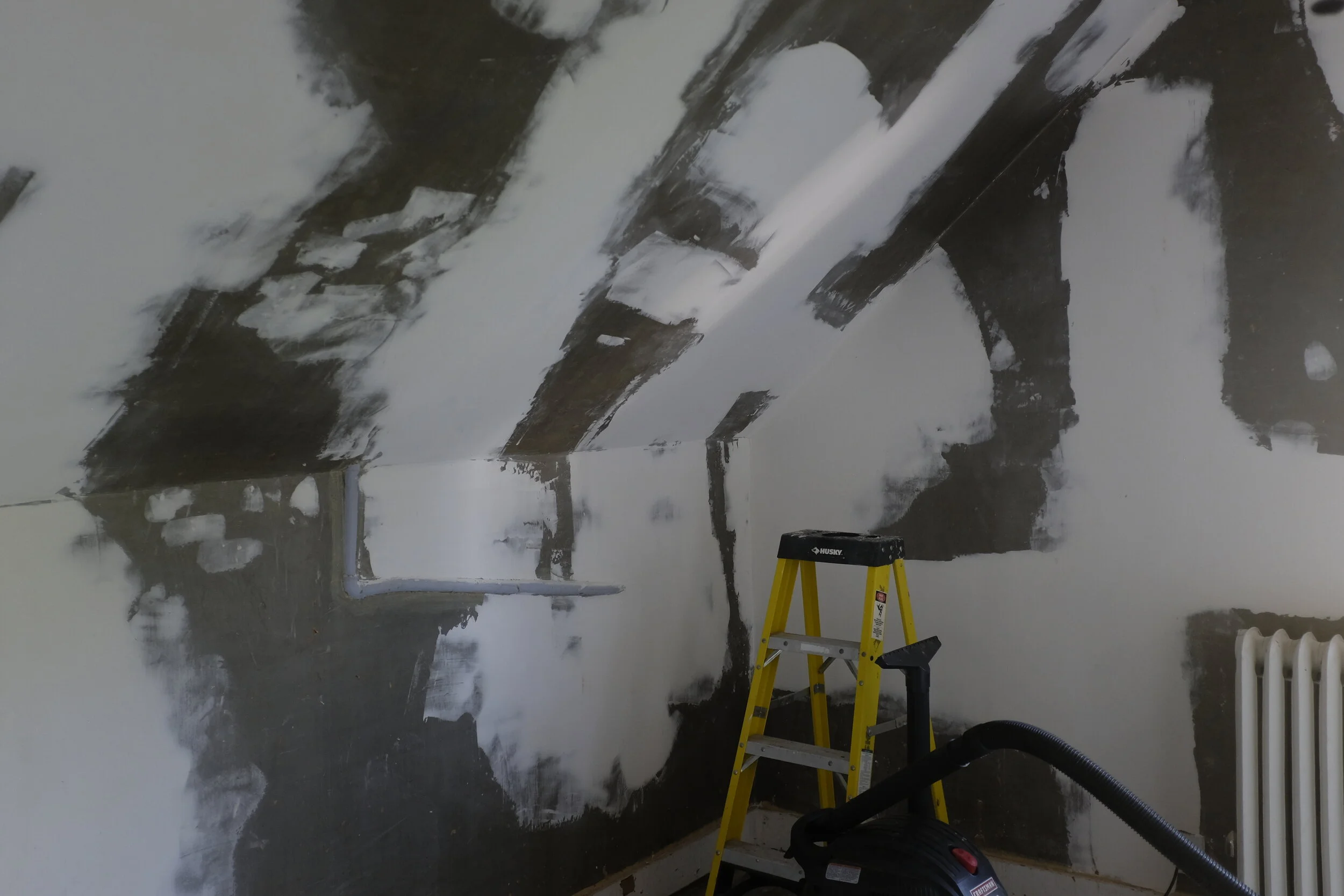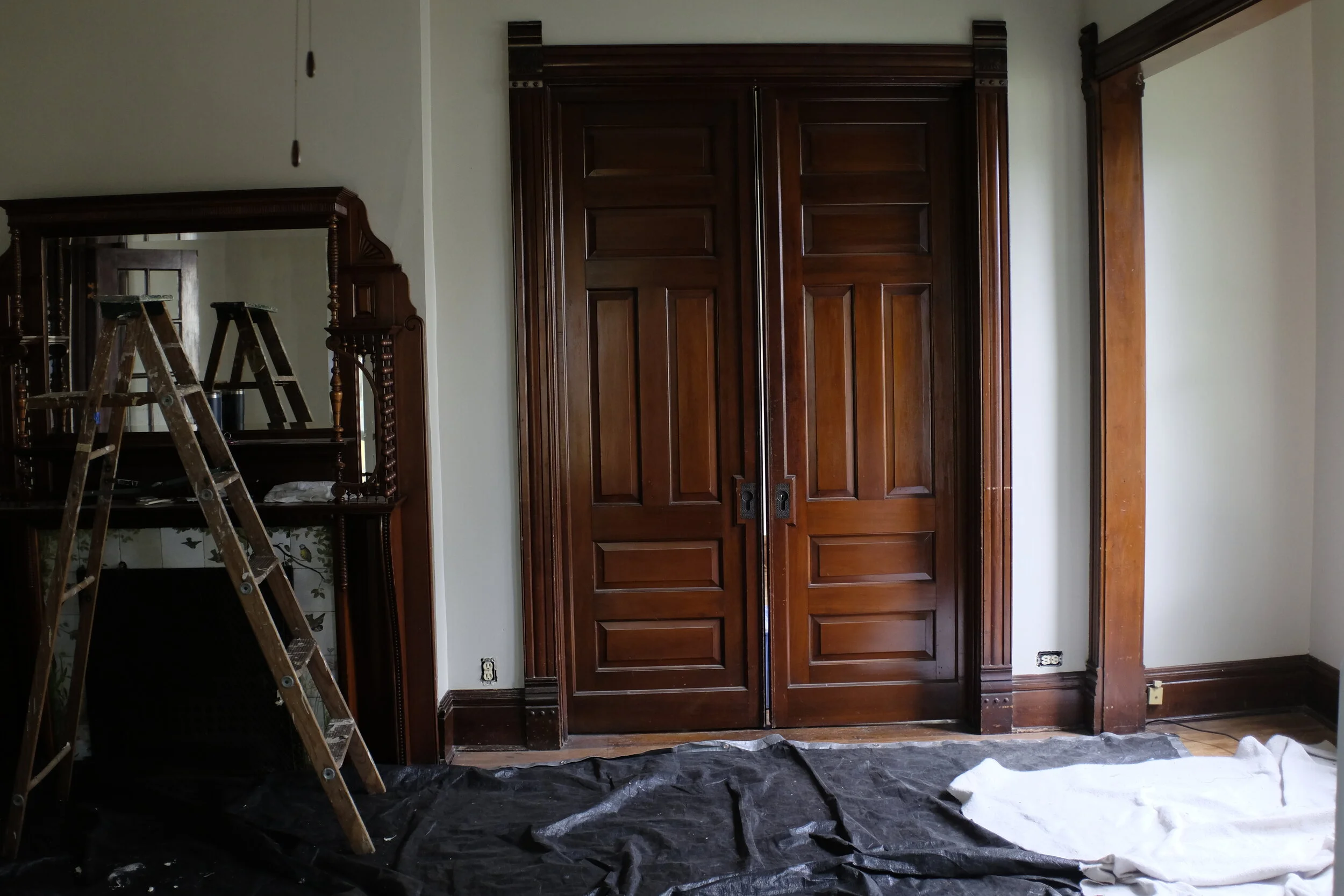Consider the Bees
I never knew bees could be so exhilarating. I never really thought much about ‘em I guess. That was until I saw April and Stevie take a headfirst dive into amateur beekeeping this year. And amateur is the perfect word to describe them. Not because they aren’t skilled. They certainly are. They are amateurs because they aren’t doing it for the money. They are doing it purely for the passion of it. They just love those bees.
And as I’ve observed their budding beekeepers passion I can’t help but think that they are showing me something of the heart of God. On child like tip-tip they waited for the nucleus to come in the mail. In earnest determination they assembled and painted their hives. In tenderness they carefully and meticulously transferred those bees into their new home. Their labor is so good. And it seems to me, godly.
The older I get the more I appreciate the preciousness of God’s creative gifts. And by creative gifts I mean both the gifts of artistic beauty and the gifts he gave in the moments he created the entire world. In Genesis we get a beautiful picture of God creating a world that is in bloom, that is beautiful, and that is pregnant with possibilities for cultivating a flourishing life. This is why the image of Garden is right.
And into that Garden God placed humans. And the Bible says that God gave human beings a purpose in that place. They were to work. But not just work. They were to work to good purpose and to good pleasure. They were to work and keep their place in such a way that they would cultivate flourishing growth. And they were to enjoy themselves to the glory of God. The picture of their labor is summed up in the phrase exercising dominion. Humans were created to rule and reign their environment like a good and wise King—like God. Humans were created to be princes and princesses of this Garden world, co-laboring alongside and on behalf of God himself.
The problem of course is that further down the storyline we bump into the fall. The serpent, sin, and death enter into the Garden. Our work becomes cursed. And now every human has to fight through miserable thorns as we go about our work. But even though our work is cursed, the original design is still in place. The original purpose of our work is still God’s desire. Even in the brokenness of the world God is actively redeeming our humanity. And as it relates to work, God is showing us what it looks like to cultivate a beautiful life through the labor of our hands.
Examples of this beautiful work can be seen in often overlooked areas of our lives. Spirit empowered beautiful work can be seen in the quiet morning ours of a mothers daily work of preparing good food for her child to eat. It can be seen in the way a barista makes eye contact or calls a customer by name while crafting a good cup of coffee. It can be seen in the way the electrician terminates a ground wire safely, doing his part to ensure the building will be safe from potential calamity. Paraphrasing the often quoted words of Luther: Christian work is doing a good job.
So consider the bees. God cares for the little bees with big love. Jesus pointed this out with the way God causes the flowers to grow and how he feeds the birds. God’s creative provision can be seen and tasted in wherever we look in this world. Grace is everywhere.
But don’t just consider the bees. Consider the beekeepers. April and Stevie’s heart for the bees gives us a tangible picture of what it looks like to work and keep the Garden, to labor for the glory of God and for the joy of being a human. These princesses of the bees do more than show us their hobby; they show us the heart of our King.
Bonhoeffer: A Meal Together is a Holiday
In Bonhoeffer's classic book on Christian community called Life Together he asserts that fellowship around the table has a festive quality. Not only is it important for the Christian to see the table as a metaphor for restored relationships, a tangible means of experiencing the ministry of reconciliation, we are also to see the table as a kind of holiday. An ordinary meal together is an opportunity to celebrate life as a gift from God.
He writes, “Our life is not only travail and labor, it is also refreshment and joy in the goodness of God. We labor, but God nourishes and sustains us. And this is a reason for celebrating.”
This is a reason for celebrating. And don’t we need a reason to celebrate this season? Many people that I’ve talked with feel beat up and run down. Whether it's the nauseating political cycle, the constant uncertainty of our economy, or the social deprivation this pandemic has caused, we all need a holiday. And what Bonhoeffer is arguing here is that you don’t have to fly down to Cancun to get some rest. With a little intentionality and a heart posture of thankfulness, the ordinary evening meal can become a kind of sacred daily celebration.
He roots this idea in the Word. Man should not “eat the bread of anxious toil” (Ps 127:4); instead we are to eat our bread with joy, drink our wine with a merry heart (Ecc 9:7). “For man has nothing better under the sun but to eat and drink and be joyful, for this will go with him in his toil through the days of his life that God has given him under the sun” (Ecc 8:15).
Bonhoeffer also says, “God cannot endure that unfestive, mirthless attitude of ours in which we eat our bread in sorrow, with pretentious, busy haste, or even with shame. Through our daily meals He is calling us to rejoice, to keep holiday in the midst of our working day.”
It’s clear that Bonhoeffer considered the joy of common meal time with great seriousness. He is not advocating for vanity, excess, or a showy fussiness. I promise you the rest of his writing is pretty stoically German, lacking any real ornamentation. So why is he so adamant about seeing meal time as a festival? It’s because every meal time we enter into the liturgy of grace and forgiveness. With our daily bread we are reminded that God gives his children good gifts, and we are reminded that we enjoy these gifts as unworthy servants. Enjoying our food together makes tangible the enjoyment of God together. His presence meets us in this ordinary ritual.
As many of you understand, life is full of toil and trouble. But for many of you you also rush on through supper and miss an opportunity for a bit of rest. This is one thing the Hobbits understood well. Pippin would be shocked with our fast food culture, and that we don’t eat more than one breakfast. Ok, maybe not eating enough meals isn’t a problem many of us have. But I suspect that if you are like me, it’s the quality of the meals together, not the quantity. So let’s take Bonhoeffer's point to heart. As the world toils anxiously and endlessly, let it be the Christian community that models rest at the table. And may that be a testimony of our Lord’s work on the cross that brought us to His table of eternal life.
In Defense of a Congregation
If you were to take a casual stroll around the digital neighborhoods of churches you would probably walk away thinking two things. 1) Churches are primarily brands who put out content. 2) Pastors are primarily brand managers and spokesmen who deliver their content to their congregations who are mostly seen as an audience to “engage.” And if you were even more observant (maybe a little cynical) you would think churches spend most of their time competing for the attention of a dwindling evangelical market share. Doesn’t that just sound funny?
The problem with this view of church is that it’s too abstract. It’s too fuzzy. Church as digital brand is actually an anti church. It’s an anti church because it obscures the heart and soul of what makes church...well...church. At least if we are going to make some sort of attempt to seek out a biblical understanding of church we have to deal with it as the New Testament defines it. And the New Testament picture of church is way more beautiful and particular. The picture is of a local congregation of real and ordinary people who belong to Christ and to one another, knit together in the bond of love.
There are many places in scripture we could explore to fill out an understanding of the local church. But I want to jump into some of my favorite spots in scripture. These are my favorite because they illustrate the incarnational nitty gritty of what makes church so darn special.
As a pastor I can appreciate Paul’s letter to the Thessalonians. This letter is dripping with pastoral affection. You can tell Paul is not going to settle for treating this congregation in Thessalonica as a passive audience to information dump on. We know this because he actually says he not only wanted to share the gospel with them but he also wanted to share his life with them because they were dear to him (1 Thess 2:8). Elsewhere in the letter he uses very emotive heart language. He writes to them with a Fatherly type of knowing. This church was not just a group to engage with his content. These people were individual souls that he knew and loved by name.
Another place that informs my understanding of the local church is John 13. The way Jesus treats his disciples always floors me. I’m sure that Jesus knew that these guys had the same tendency we modern people do to abstract the way of Jesus. I’m sure he knew these men were sometimes more eager to talk about Jesus than they were to talk to Jesus. I’m sure he knew that if left to their own devices they would have run off with the resurrection news and turned it into a movement or a cult of self improvement motivation. So instead of letting his precious teaching devolve into that, he gives them a very concrete example of how they are to live the kingdom of God. He washes their feet. This particular act was done by the incarnate Word in order to demonstrate that this gospel is not just a message to peddle but a life to live. They were to live the way of love. But not love on their own terms. They were to love as Jesus defined and demonstrated.
“A new commandment I give to you, that you love one another: just as I have loved you, you are to love one another. By this all people will know you are my disciples, if you have love for one another” (Jn 13:34-35). What Jesus is doing here is he is making love tangible for the community. It’s not just a fluffy message. It’s a way. Jesus will eventually go and demonstrate his infinitely more wonderful love for them by dying on the cross. But as he said to Peter, “where I am going you cannot follow me now, but you will follow afterward” (v. 36). Jesus alone had to go to the cross to atone for sins. This act of love belongs to God alone. But afterward the Spirit of Christ would animate the community to live a life together that would be shaped by this cruciform love. Jesus washing the disciples feet was a lesson in ways and means. He was demonstrating how to live out their identity as a community knit together by the love of Jesus.
This is very important. Jesus tells us why we need the ordinary, sometimes lacklustre, group of people we call a congregation. In order to really live into the life of love Jesus created for us we have to really love people. We can’t love the idea of people. We have to love faces, names, stories, flesh and blood people. Ad as Jesus said, by this one another love people will know you are my disciples.
This is why I believe the Bible advocates for church membership. To really live into the one another love Jesus died for, we must belong to one another in a meaningful sense. Life in the Spirit is life together knit together in the bond of love. This is what 1 Corinthians 12 and 13 teaches. God gives spiritual gifts to the church “for the common good.” How is that actually lived out? It must be lived out in the life of the congregation. The local congregation is the only context in which the way of Jesus has any chance to really manifest itself to the world.
There's more to be said about this issue for sure. But my intention in writing this is that whoever reads this would give their lives more fully to Christ, and in doing so would see that to live the way of Christ to the fullest means belonging deeply to a local congregation. Our world is steadily retreating into the digital ghettos. Christins must fight that movement and advocate for something fuller, more robust—the congregation.
Christian, Home is Found in the Church
The other day I had one of those aha moments. It was one of those palm to the forehead epiphanies that aren’t so much about learning something new but finally understanding what you already know. I had just told a friend that I felt homeless in my hometown. It is a strange feeling that I am still processing. But I also told him that I feel at home when I am with our Jesus community. And as we were praying for one another he said something like this: “Thank you God that even though we are exiles wandering this earth, you give us the church community to be our home.” It struck me as wonderful. I felt an abstract theological truth dislodge from my brain and come to rest in my heart. Prayer has a way of doing that.
If you are like me, feeling a bit of homelessness in this life, you and I are in good company. The story of scripture testifies to homelessness being one of the main problems of humanity. The story of redemption is largely about humans trying to find their way back home. From the Garden, to the Exodus, to the exile, the people of God have always been haunted by the nagging sense of homelessness. This is why Peter refers to the church as “sojourners and exiles.” We all just want to go home.
But where is home? A casual reading of the scriptures would lead you to believe that home is a place. And you’d be close in that assumption. It makes sense. Adam and Eve had the Garden and the Israelites had Canaan, and we look forward to New Jerusalem. The story of pursuing the promised land looms large in the Bible. And really you can’t have a very concrete understanding of the kingdom of God if that kingdom doesn’t really exist in a physical place. The on earth as it is in heaven thing makes no sense if on earth isn’t really on earth. And yet in our half saved condition what does home look like? We are exiles and sojourners until the new creation. Until the end comes we are left to wander about homeless. But can we experience home now?
We certainly can. Moses, the man whose primary ministry was to lead people home teaches us about what home looks like as exiles. The opening line of his prayer in Psalm 90 is this: “Lord, you have been our dwelling place in all generations.” That phrase ‘dwelling place’ can also be translated as refuge. Through all their displaced wilderness wanderings Moses essentially prayed that God was their home the whole time. This is why he was so adamant about not even wanting to lead the people to their physical promised land if God’s presence wasn’t going to be with them (Ex 33:15). What we learn from this is that for the people of God, God himself is our home.
But how do we live into that as flesh and blood people? How do we bring this nebulous concept close to the ground? This is where Jesus is helpful. Jesus the great teacher, used an analogy to demonstrate how to live into God as our home. On the eve of his betrayal he gathered with his disciples and washed their feet. This, he said, was to serve as an example of the kind of love they were to demonstrate toward one another. They were to serve one another in self sacrificial love, which Jesus perfectly demonstrated on the cross. And more specifically to our understanding of home, Jesus told his disciples that if they truly loved him, they would abide in his teaching, and they would love one another as Jesus loved them. And if they did that, Jesus promised that the Father, through the son, by the Spirit would make his home in them. To put it simply, Jesus taught that home is found in God. And that God is experienced through the church. The church is not God, but God promises to manifest home to the church when the church loves one another.
One of the uncomfortable implications of this for modern people obsessed with individualism is that we must prioritize the church community. If God makes his home in us and we find our home in him through living life together in a loving community, well, we better get into community. Because I don’t know about you, but I want to go home. I want to feel the nearness and security and the love that a true home brings. And I know that is only found in the presence of God. And the presence of God is found in the people of God loving one another. Isn’t that a wonderful idea.
Is the American Church Non-essential?
I’m a pastor of a local church. I’ve been in some form of ministry for about a decade. So much of my lifestyle, passion, and vocation has been wrapped up in ‘doing’ church. I love the church. And so it breaks my heart to see the American church weak in the knees right now, reeling from a punch to the temple by this pandemic. As people scramble to survive and hold on to some sense of sanity, our culture is quickly identifying and holding on to what is “essential.” And the church is being treated by the culture as “non-essential.” It’s being dropped. But I really can’t blame them.
An artist named Tyson Motsenbocker synthesizes the way many in our culture feel about the church in his song Sunday Morning. This is the chorus.
Well is God just a feeling
You can use at your will?
Beat your heart inside the loving
Pull the trigger when you kill
Well your promise of a new life
Read closer to a warning
So I don't blame anyone for passing
What gets sold on Sunday morning
Much has been said about the sharp decline in church participation over the last 20 years. The internet is full of statistics that bear witness to the imploding institution of organized Christianity in America. Here is an example of a study I find helpful. But it’s not all doom and gloom for the church. The statistics point out that there remains a remnant who are still deeply engaged in The Way of Jesus. And as first hand experience has taught me, God is still alive and well. He is still preserving his church in America.
But what is undoubtedly happening is the fat is being burned off the American church. It’s like a boat crashing through a violent storm. The excess non-essentials are being thrown overboard by the crew. What’s hard to watch is that cultural Christians have spent more time holding the dessert fork and now they can’t find the oars.
The reason I can sympathize with people who treat the church as non-essential is that the American church is obsessed with what is non-essential. What passes for church in many places is nothing more than glib religious entertainment—a sideshow of surface level platitudes delivered by people desperate to keep their hulking organization profitable. I know that sounds harsh. But I’ve been there. I’ve felt the pressure of that mindset. I still wrestle with it. As a worship leader for many years I feel the first hand pressure to keep people’s attention and ‘engagement.’ Which ironically is what every online marketing strategy is obsessed with right now. And I’m not saying engagement is wrong. A deep engagement and attention between lovers is a beautiful thing. But a cheap grab for attention is like pornography; it’s gross. There’s a difference between a lover’s engagement and a Hardees commercial. The problem is that the church has been trying to tell a deep love story by engaging people like a Hardees ad.
So as the culture rocks in the boat, terrified, anxious, lonely, scared of death, I am not at all surprised that people are passing on the consumer Christ the American church is so desperate to sell. In an effort to grab the attention of the consumer the church has tried to make Christ more palatable. We have minimized his death, his blood, his terrifying judgement, in order to appeal to what people actually want to hear. What passes for sermons in many churches is nothing more than a moralized TED talk. And what happens when the church tamps down the unpopular parts of the Bible’s message, and sands over all the rough edges, is that you get a church that makes absolutely no sense of any real problem any real person has. When the church is more concerned with getting kids into a ball-pit then they are getting people into the grave of our baptism, that’s when we have lost it. We deserve to be treated as non-essential.
But the Christ of real Christianity is not like this. The real Christ walks through the barren wilderness devouring the Word of God as his only source of sustenance. The real Christ terrifies the demonic, enlightens the ignorant, and heals the festering corruption of this world. And most of all, the real Christ willingly embraced the torturous death of the cross, conquering death itself. This Christ beckons us to join him. This Christ alone makes sense of suffering. It’s not going to be pretty. It’s not easy. In fact, Jesus himself said his followers should count the cost in living his way. “Whoever does not bear his own cross and come after me cannot be my disciple” (Lk 14:27). But the reason we follow Christ is not to avoid suffering but to join him in it so that we may also join him in his glory. The point of church is not to offer people a false illusion that our boat sails on comfortable seas. The real church sails on the choppy waters of real life with Christ himself in the boat.
As I write this our church is engaged in the season of Advent. I am haunted by its story. I am haunted by the brokenness of the present and the longing for renewal. But I’m also thankful that the incorruptible Christ joined us in our corruption and promises to make us incorruptible. But the path to glory is through the door of death. Because death has a way to demonstrate what is important. Why do you think the Gospels spend so much time on the death of Christ. This is ultimately why I am optimistic that the church will emerge healthy and purified by this pandemic. Entertainment only church will die. Superficial church will die. The evangelical industrial complex will grind out and halt. And what will emerge will be what has always been. The people of God sojourning through this world as exiles following Jesus home. But until we arrive home we must listen for the voice crying out of the wilderness, the voice in the stillness, the voice of God saying, come child—come and die so that you may live.
The Limestone Cries Out In This Place
Have you ever been in a place where there is deep sorrow present? Have you ever felt like the sadness reaches out and touches you? There are some stories so full of heartache, some songs so sad, so pregnant with longing they seem to have the power to pull our hearts away like they were attached to some ancient kite on a string. There are some places where it seems the rocks even tremble to the tune. And they seem to join the groaning chorus of Creation, crying out for renewal.
Clinton Iowa is one of these places. How many stories can a person here that begin with “Isn’t it a shame that…” Or, “Yeah this used to be…” How many stories of loss can a person endure. What if that story of loss is your story.
In the Bible there is a story about an ancient Jewish leader named Nehemia. He was a member of the community of Israel. But he was displaced. He didn’t live with his kin. He was living in a foreign land. He was actually very close to the ruler of that land, the king of Persia. And one day Nehemia received news that his Jewish brothers and sisters living in his home city of Jerusalem were living in “great trouble and shame” (Neh 1:3). And no doubt he would have been reminded of the story of his people’s humiliating defeat at the hands of the Babylonians; and how their people were exiled to live away from their homes; and how Jerusalem, the city of king David, whose throne was supposed to last forever, lay in ruins. Hearing the news of his people’s trouble, caused him to fall on his face and weep. He wept because he feels a sense of homelessness, even if it's just from the stories he’s heard. He wept because he feels the sadness of the glory days that have come and gone.
The king notices Nehemia’s sadness and he asks him why he’s so sad. Nehemia answers, “why should not my face be sad, when the city, the place of my father’s graves, lies in ruins, and the gates have been destroyed by fire” (Neh 2:3). This moves the king and so Nehemia is commissioned by the king to go and rebuild his homeland, Jerusalem.
It doesn’t take much interpretive work to feel the heartache of Nehemia. He felt an ancient sadness that we all feel. We all feel a sense of, “this isn’t the way things were supposed to be.” “This isn't the way things used to be.” This is because the sadness of The Fall reaches out and touches us. The Fall was that heartbreaking moment when our ancient mother and father, Adam and Eve, sinned. In their disobedience, they severed the relationship between heaven and earth. And what was their home, became a memory of the glory days—a time when they were in the presence of real joy.
The song of The Fall still echoes into our day. Every time we pass an abandoned house that has an overgrown play-set and broken family room windows we hear the tune. Every time we travel the rough contours of a highway that passes through a midwest ghost town, that was once home to a flourishing local life, we hear the echo. All around us the sprawling decay of dead limbs, rotting flesh, and crumbling structures cry out the anthem of homelessness we all feel, reminding us that we’ve lost Eden.
As a Jew, the apostle Paul would have also felt the groanings of this sadness. He would have felt displaced and homeless. He knew the story of Eden. And he knew he lost it. And yet, he longed for renewal.
Acknowledging the suffering and the sadness this world brings, he also longed for more. He even wrote that the creation waits with eager longing” (Rom 8:19). The eroding rocks and the drooping tree limbs cry out in longing for renewal. Even creation knows that things are not the way they ought to be. This place is cursed—subjected to futility, Paul says. No matter how well the craftsman sets the doors on its hinges, they will bind in the rust and fall off in the decay of rot. The ruin is unstoppable. And in the obviously broken places of our lives we feel the tangible nature of this curse. We have sinned and fallen short of God’s glory. And yet, there is hope for renewal.
What ties the sadness of Nehemia, Paul, and ourselves together is that it is all a byproduct of living under a curse. But it is not an unbreakable curse. Our destiny to return to the dust of this earth is not a fixed reality. This is because a man named Jesus broke the curse by becoming a curse for us. He took the load of all the world's misery, and most importantly, the sin that separates humans from God. The homelessness that the fall wrought for all people is reversed in Jesus. Accused people can actually be freed from the bondage of rehearsing sad stories and sad songs. Joy is possible.
We see this in the book of Nehemia. As the people were weeping under the weight of this ancient sadness, God tells them to take heart. They are to be happy instead. And the reason is that the joy of the Lord is their strength. God himself wants to be near to us once again. And in this broken world, with homeless people, he makes a home in us by giving us his spiritual presence.
Paul reiterates this in Romans that the Spirit sets us free. It is the presence of God that fills us out and makes us whole. And it is the Spirit that brings true renewal. We are given a spiritual renewal on the inside. In our hearts the sadness is transformed into joy because God now lives here. And we are home again.
And yet we still long. Buildings still crumble, people still hurt each other, and things die. So is fixing the walls and tidying up our city enough? Does rehabbing our old houses satisfy the deep longing in our hearts for total renewal? If I patch the mortar in my foundation, why does it still feel like the limestone cries out? Why do I still hear the sad groanings of longing?
This is because we only have the firstfruits. The renewal that comes to a Jesus follower, through repentance and faith in Jesus, is only the first taste of what is to come. We have the Spirit of God in us making his home spiritually. But we still wait eagerly for Jesus to come back bodily. And when he comes back he will renew our bodies as well as our spirit. And he will restore all things, reasserting the goodness of his creation.
So when you pass by a broken building, hear a story of a broken marriage, see the crooked lines of this world, listen for the sad song. Let the kite take your heart to a place of eager longing. And in faith wait patiently for the One who will come again in judgment, to judge the quick and the dead. Jesus is coming back to turn your sadness into joy. He’s already started. Stick close to his presence and everything will be alright again.
History—A River of Desire Bringing Force to Our Vision
New things are started every day. Whether it’s learning a new language, practicing a new skill, starting a new company, whatever it may be, there is always a season for new beginnings. But have you ever asked yourself why people are so interested in newness? It takes an incredible amount of energy and will to really get a new ball rolling. And as I’m sure you know, sometimes we start rolling balls we don’t have the energy to keep in motion.
Starting something new requires vision. It requires the ability to see into the future, even if that vision is only one step ahead. You start a new job because you have a vision for life with more money or more free time. You may start playing the guitar because you envision life as the creative person at the party, perhaps. But beneath it all why even do it? Because for a thing to last, and really work, your vision must have force behind it. And that takes a lot of effort. So why start something at all? I think you know. It’s because you want to.
Desire is what makes the world churn. Our Creator’s desire for his own glory, your desire for the good life, it’s desire that arouses new beginnings and fresh starts. Deep in the center of your heart, your gut, you yearn, you long, and so you begin again.
This is true for me. I am in a season of fresh starts and new beginnings. I am planting a church. Deep down I long to see a new church made up of people who have had their lives freshly changed by the born again work of the Holy Spirit. I long for that. I envision what that community could look like. But then I notice something else that is present in the season of new beginnings—problems—dragons that must be put down.
As one pastor puts it, “mission exists because worship doesn’t.” New ministries are started, like church plants, overseas missionary teams, or groups that seek to end sex trafficking, all because problems exist. I’m planting a church in Clinton because there are souls in this place that have no hope and will die, left to rot separated from the love of God. That’s a big dragon of a problem—one that God has a vested interest in vanquishing.
I’m also restoring a big old victorian style home. I have a vision for our home and my desire for that vision to become a reality brings force to what I do. But like spiritual work of church planting, the physical work of restoration and redemption is filled with problems. Actually it’s all problems. If there were no problems I would have no work to do. But as it stands now, I have problems for days.
But there is a problem with starting new things to address old problems, interestingly enough. And most of the time its people like me who are the purveyors of new problems. That is, when starting something new, we tend to throw ourselves at the task of solving the problem with all the force of our desire that we can muster, oftentimes, with complete disregard for those who have come before us. It is called youthfulness. And as a thirty-something-year-old millennial, I’ve committed the sin of generational arrogance a time or two. But I know some youthful old folks too. Pride really isn’t committed to one age group.
What’s made me think of all this lately is learning more about the history of my house. The public library in Clinton has digitized copies of old local newspapers. This allows me access to their database and type in keywords that the program will find in old newspaper articles. And so I did that. I searched the last name of the oldest previous owner of my house. What I found was pretty amazing.
Because the old newspapers around the turn of the century published articles about the social lives of private citizens (think social media pre internet), I was able to find a lot of articles that featured gatherings at my house. Most of the articles surrounded the social life of Mrs. Leedham and her family. It seems that the Leedhams were a prominent and affluent family in Clinton around the turn of the century, which was Clinton’s gilded age. Her husband was Frank Leedham, the county auditor around the early 1900’s. The newspaper articles told of Mrs. Leedham hosting groups like the literary society for catered lunches. There were articles about parties that were expected to have many in attendance. But what interested me the most was the articles about her involvement in Grace Episcopal Church.
Mrs. Leedham played hostess to many church gatherings over many years. She seemed to be a socialite, providing community glue to this area. Her desire must have fueled a vision for using her home as a place of relationship, of conviviality, of joy. This is a desire I share. This is why I am deeply interested in the history of this place. Because when I hosted our first church gathering in this house, I stepped into a river of collective desire, bringing great force to my vision of seeing this house be a place of community building once again.
This has become deeply metaphorical for me. And there is a huge problem looming over it. What happens when there is no memory of the past. What happens when the cultural cycle breaks. What happens when our vision is no longer reinforced by the great churning river of local memory—the stories of the dead.
When the stories of the dead are preserved they are passed down through tradition. And as many others often point out, breaking from the knowledge of our tradition is foolish. G.K. Chesterton put it this way:
“Tradition means giving votes to the most obscure of all classes, our ancestors. It is the democracy of the dead. Tradition refuses to submit to the small and arrogant oligarchy of those who merely happen to be walking about.”
Our imagination suffers when we break from tradition. And imagination is critical to possessing a vision for a flourishing life. Because imagination is the ability to see possibilities that are really latent in a place. Seeing the possibility of a place leads to cultivating them into fruition. But to see rightly we need the glasses of our ancestors. Not because they were perfect, but because the better we understand what shaped their desire, what compelled their vision, and the work they did, the better we will work as we start new things. For example, we won’t want to reinvent the wheel if the wheel was already invented. Local memory aids in the formation of a vision for local flourishing.
But local memory is often discarded. The most tangible illustration of this that I can think of is Springdale cemetery in Clinton. Clinton has several cemeteries, but Springdale cemetery stands out to me in it’s storied history and its present decay. This cemetery is where the founders are buried—the lumber barons and wealthy intelligentsia that resided in Clinton once upon a time. These families had enormous tombstones made from expensive stone, hulking mausoleum house their corpses, and choice ground reserved for the presentation and preservation of their family name. This ground and its sextons were entrusted to preserving their memory and story. And as the Christians who died among them would have said, “Here lies one who is asleep, but will rise on the day He appears.” Their monuments marked a vision for the eternal new beginning.
But now much of the stones are eroded, especially the less prominent men, women, and children buried there. The passage of time has not been kind to these gravesites. Erosion has thrown solid stone tumbling down hillsides. Wind and rain have obscured the names of the dead, and with it the memory of their personhood. What was once the site of someone's mother or father, son or daughter, is now nothing more than a pile of rubble marking the spot of decaying bones.
The problem is really no one person’s fault; which makes it that much more heartbreaking. Over the years the cemetery became insolvent. It basically ran out of money. And so it went into receivership. This essentially means the state received ownership of the real estate and is now its caretaker. It subcontracts out basic grounds keeping, but the preservation of individual graves is a responsibility for each individual family. But many of those families are no longer members of the community. And so the cemetery sits in a state of slow decay, in absentee ownership, slowly being swallowed by the hillside, returning its bones to the dust from whence they came.
The metaphor extends into other structures of this town built by men. Mortar blows out from between the bricks of abandoned downtown buildings. Once great structures of skill and creativity have been reduced to parking lots. Even my house has been neglected, forgotten, forsaken, giving the forces of ruin a foothold. But there are men and women in this place attempting to stalemate the decay.
There is an expression that is fitting to all this talk of vision and desire. ‘Instead of telling people to build the boats, give them a vision for the sea.’ That applies to Clinton now more than ever. There are many people attempting to stalemate the forces of ruin in this town by simply building boats. Many buy old houses and fix them. Some pick up trash on the side of the road. Some buy old downtown buildings and fill them with antique shops. But without a vision informed by the stories and traditions of the past, our visions will have no force; our new things will not last.
But if we step into the river of the past, into the river of collective desire, we can see with a visionary force that has the strength to change the world, to reverse the curse of decay. To do that we must preserve and tell the story of the past, bringing it to bare on the present. There is power in this river.
As a Christian, this looks like stepping into the Jesus story. It looks like devoting myself to the apostles teaching and to the prayers. What a foolish thing it was for me to think that by abandoning the ancient practices of bread and cup, water and wine, word and sacrament, I could actually do better than my ancestors at addressing the problem of sin in the world. I realize now that real vision is developed at the intersection of story—story of the dead, the living, and God’s. These three tributaries flow into a massive river that can bring real force to our new endeavors. This is because a true vision of force, a vision of the sea, is animated by the Ancient of Days.
The Crossroads of Ruin
In one of my favorite books, Housekeeping, by Marilyn Robinson, two young girls named Ruth and Lucille grow up under the looming shadow of loss, decay, depression. Their mother, while they were still very young, drove her car into a lake, killing herself. The girls then move in with their grandma. She was charged with caring for the girls. She eventually passes and their aunt Sylvie is called in to care for them. She is a transient. She is wanderer. And she has odd habits of keeping house.
The book really is an exploration into how people respond to the worlds immense sadness and the decay that surrounds us. Their aunt Sylvie sleeps with her cloths on, carries conversations with imaginary friends, and eats in the dark. Long ago she was faced with the sadness of her own life and she responded. And the book explores two main responses. The girls diverge toward opposite ends. Lucille grows irritated at her aunts odd habits of housekeeping. She learns to sew her own dresses to keep up with the latest style, she becomes fastidiously neat, and she becomes incredibly agitated at any behavior her sister displays that keeps them from fitting in. Ruth on the other hand retreats into the shadows. She learns that if you stop fighting the cold the feeling of being cold no longer becomes uncomfortable. She learns to live in the decay. She is what we would maybe call apathetic or complacent with the world and its ruin.
The books resolution happens when Sylvie and Ruth run away together. This is the consummation of Ruths response to the sadness. She has chosen the life of a wanderer, a transient. And as she rides the rails she passes the town of Fingerbone, where her and Lucille lived together. And as she catches a glimpse of the old house, she imagines Lucille keeping house, always waiting to be reunited with what was lost. Ruth imagines Lucille aggressively attempting to stalemate the forces of ruin.
In my own life I am living at the same crossroads. 2020 has been tough. Following the call to plant a church is work enough. There are enough obstacles to overcome just to begin the seed planting of a spiritual people. But throw on top of that Covid-19, a near death experience severing nerves in my right arm, and the recent blow down of nearly ever old growth tree in Clinton County. Also, my family of 5 is all living in one room at my parents place while we wait for our 132 year old house to be livable. For the first time in my life I understand the crossroads all people face at one time or another. Some of the ruin is a consequence of my own decisions. Some of it is not. Do I manically pull myself up by my bootstraps, charge into the chaotic sadness and attempt to stalemate the forces of ruin. Or do I lean into the sadness, stop fighting, and let the decay become part of the contours of my life.
My tree in the front yard. It has a crack splitting the tree all the way to the roots. I have no idea how the branch aiming at our big picture window has not fallen. So we ratchet strapped it. This perfectly captures and illustrates the phrase, “stalemating the forces of ruin.”
A story sticks out in my mind that illustrates this perfectly. My old house, in general, is a story like many old houses, of a once great structure that has fallen into disrepair, and has fallen into that familiar toxic cultural cycle—the big broken things are so expensive to repair no one wants them, so they sell for cheap to people who can’t afford to keep it up. And so my house is a story of deferred maintenance bumped off down the road for decades. Small problems that could have been addressed early with small amounts of money and diligent effort are now large problems that require large amounts of money and back breaking work. For example, the other day we were cleaning the door at the bottom of our stairs. There is one spot on that door where a dirty hand must have opened it holding the same spot on the upper part of the outside stile. It has left a decade old black smudge. And so while we were cleaning it someone said, “I just don’t understand how someone can live like this.” They were commenting on the fact that all it would have take was a once a week or once a month wipe down to prevent a dirt spot that took hours to clean with hot water and vinegar.
I’ve since reflected on this. How could someone pass by a dirty hand print and not clean it up? But then I thought, the dirty hand print is just one manifestation of the larger mosaic of ruin and misery that must have been present in their lives. It’s like expressing frustration at a person struggling with chronic depression, exclaiming “I don’t now why you don’t just get out of bed!” The psychological, physical, emotional, mental, spiritual ruin some people live in keeps them from seeing the handprint as obvious. They don’t see the problem as fixable, nor do they feel the efficacy to fix it. The totality of the ruin that surrounds them eventually threatens to overrun them. And when it does, they experience what some call “giving up.” But that phrase is a bit facetious. What actually happens for people when they are at the crossroads of personal ruin is more devastating. The burden of the worlds sadness crushes them, and they break.
Understanding even a sliver of this existential horror show allows a person to really hear the invitation of Jesus as gospel. The tender beckoning of “come to me, all who labor and are heavy laden, and I will give you rest. Take my yoke upon you, and learn from me, for I am gentle and lowly in heart, and you will find rest for your souls. For my yoke is easy, and my burden is light.”
These words express the basic gospel hope for a people crushed by their load of misery. Jesus stands in solidarity with the crushed, because he was crushed with the full brunt of the worlds decay, and he died rotten on that cursed old growth tree. But he alone stalemated the forces of ruin. And more than that, he triumphed victoriously, shedding the horrors of hell. And so his invitation is to participate in a different way. He calls to a people at the crossroads of ruin, and he says don’t give up, but don’t try and climb out by yourself. He instead climbs in with us, absorbs the burden we cannot bear, and calls us to bear the lighter load of faith—trusting that he will one day consummate our joy by restoring all things to himself.
And so the people who find themselves at the foot of the fallen decaying tree, need to also know that Jesus was crushed under that on their behalf. And so we should throw ourselves into the good work of restoring power to our deep freezes and pulling hard maples off the roof of our neighbors houses. But we must remember that the physical ruin manifests a much deeper spiritual ruin, one that Jesus wants to lighten for the world.
He Must Increase
Praying for God to open doors of opportunity is a common petition we bring to him. Whether we want him to give us that job change we want, that new baby, or just an ounce more happiness in this broken world, we long for God’s fatherly blessing. That is, unless that open door is stained in blood.
Last week I fell working on my house. I was patching cracks in the plaster. I was almost finished with a wall in a very awkward stairwell when my feet slipped and my arm broke through 130 year old glass in the stairwell window. As I fell my arm caught a piece of glass just above my elbow, making a clean slice through every nerve and vain except my artery.
As soon as it happened I knew it was bad. I could no longer feel my hand and the blood I was losing seemed lethal. I was working alone. And so I was honestly afraid I was going to bleed out right in that house. So I grabbed my arm as hard as I could with my working hand, and I walked from the back of the house to the front. I didn’t know what else to do other than cry for help. As soon as I shouldered open my screen doors I stepped out into my front yard yelling for anyone who could hear. It was the middle of the day so I wasn’t sure if anyone would hear me. All I could think about was how much blood was pouring onto my pants, and how much I didn’t want to die in the front yard of this old house we just purchased only three weeks ago. I had my wife and daughters on my mind.
Fortunately my neighbor, who I barely even had a chance to meet, heard my cries for help. For some reason she had her windows open on her second floor apartment during one of the hottest days of the month. And so as she was freshening up in the bathroom she heard me, saw me and grabbed her bathrobe tie and ran down the stairs to my aid. Again, fortunately she was a retired nurse. So she used her bath tie and a screw driver to tourniquet my arm. There were also two young children who heard my cries and rushed in to tell their parents. Between the retired nurse and the kids’ parents, they took the necessary steps to try and stop the bleeding and get the paramedics.
The rest is as you would expect. I was airlifted to the University of Iowa hospital. There they performed surgery on my arm to resupply my arm with blood and nerves. The blood supply was fixed right away, but the nerve repair is more precarious. The plumbing works but the electrical does not yet. But the doctors are optimistic I’ll recover.
Like many who go through suffering and injury, I have learned some lessons. Aside from standard ladder safety and other OSHA type common sense, there is a deeply spiritual lesson in all this. And it seems this is the means God has sovereignly chose to teach me.
Im a physically weaker man today than I was two weeks ago. And this is hard for me because I am only a month into starting the work to plant a church in Clinton, a community that needs all hands on deck. I was hoping to throw all my physical strength, my mental abilities, and my creative energy into making disciples, planting the church, restoring my house, and renewing the city. It feels like I have less power to do this. But Gods been showing me that what really innervates the Christian vocation is not my own power, but his. In my weakness, the power of Christ crucified manifests.
I’m realizing how quickly I dismiss and disbelieve the gospel. Moving to this place has channeled a lot of my creative, physical, and mental capabilities. And I would consider myself a pretty capable guy. So living in Clinton, in an old house, with a church to plant, I was ready to prove that I was a match for the task. I was fully squared up to the work ahead. I wanted to do everything. But living and working with this mindset can quickly obscure the gospel. Because it’s the gospel that says the work is finished. The deepest work, the most cosmically significant labor, has already been accomplished before I even lifted a finger. And as a Christian, God wants the gospel to fuel my vocation, animated by the power of the Holy Spirit. It should be no surprise then that God would delight to illuminate this most fundamental reality in my life.
This morning I was reading a book on pastoring. And the author quoted an old Lutheran pastor. I think this quote is timely:
Pastoral theology is the God given practical disposition of the soul, acquired by certain means, by which a servant of the church is equipped to perform all the tasks that come to him in that capacity—validity, in a legitimate manner to the glory of God, and for his own and his hearers’ salvation.
The practical disposition of the soul is what old pastors used to call the habitus. It’s the character disposition of the man called by God to shepherd the flock of God. And this disposition was exemplified the best by Jesus cousin, John the Baptist, and was articulated the clearest with his words “He must increase, but I must decrease.” As others have put it, pastors are just errand boys for Jesus. In all that I hope to do in pastoral ministry, the best that I have to offer is the word of Christ, and the power of the Holy Spirit. None of this is me. This is all about pointing others to the nourishment of Christ.
It is no surprise than that God would sanctify me and my vocation by “certain means”—means that include suffering. Because if I’m honest. My sin sick flesh loves showing people what I did or can do. But I’m called to show others what God did and is doing. I am called to the task of proclaiming that by grace Christ was crucified to make us right with God, and that by the power of the Spirit through faith we are transformed into his glorious image day by day. And so I believe God ordained my fall to produce joy in me at the testing of my faith. The suffering tests because I am now forced to acknowledge my physical need, which reveals my spiritual need that’s always been there. I am completely dependent on God for my life, my work, my ministry, and the redemption of my body in glory. All of it is a gift I receive by his work, not mine.
And so as I must with the gospel, I am becoming more habituated into receiving. It’s hard, but it’s good. All the remaining plaster patching was done by others. My mom has painted and trimmed for me. My wife is picking up so much slack I cant even name it all. And so many others are lining up to offer a hand. This isn’t about me. That’s what I’m learning. People want to help because they want to receive the sanctifying work of God that comes through a life of service. All of it is about Jesus. All of what we do must point to him. Because he alone is eternal life. He must increase, and I must decrease.
The Joy of Discovery
Pulling up the old flooring revealed newspapers from 1924.
Starry eyed optimism quickly fades the moment our hands pick up the tools and go to work. The thrill is gone, as B.B. King said. But the thrill of unfulfilled love gives way to the real work of long suffering satisfying labor. And it is this labor that leads to the joy of discovery.
The best definition of work I’ve heard is bringing order out of chaos. And with this old house built in 1888, there is a lot of chaos. This is mostly due to the years of neglect and disrespect by previous generations of owners. The deferred maintenance has piled up. But we refuse to kick the can down the road any longer. But that means we have problems to deal with—chaotic problems. And so we are bearing down on bringing order out of the chaos.
Our work has revealed some problems that we must address. For example, while we were pulling up old flooring, and tossing it out a second floor window, some of it caught a first story window sill. And good thing that it did. The sill broke clean away from the house. This exposed an insect infestation. Around the damp bottom side of some of our windows we found carpenter ants eating away at the sheathing. If I hadn’t dropped that piece of carpet onto the house, who knows how long those ants would have gone undiscovered. And so we make the call to the local pest guy. Because there is only room for one carpenter around this house. (I had to let that dad joke fly. I am a dad after all.)
Another problem that I discovered was a buckled floor. The floor in what will be our office has been water damaged over the years. This has caused the 132 year old tongue and groove oak to warp and rise. Along the seams it leaps off the subfloor. And so I used a chisel, a hammer, a pry bar, and a knife to remove the old boards, while trying not to break apart the adjacent brittle boards.
The next thing we addressed was the cause for the majority of the water damage in the office. The room above was used as a laundry room. But before it was a laundry room it was probably some type of servants wash room. I could tell that there has always been a water line servicing the room, probably for a sink. And the closet has a built in that is more utilitarian. Years ago this may have been were the servants and hired help came to use as a utility room. But we caped the lines so that there would be no chance of water leakage as we renovate.
The interesting thing about work is that the discoveries are never black and white. That’s the thing with joyful work. There is always a mingling of happy accidents and heartbreaking problems. The roses we cultivate usually have thorns surrounding them. If they didn’t than they wouldn’t call it hard work. And if it was easy everyone would do it.
The basement of this old house is exactly this. There is deep decay and neglect. But there is also happy surprises. For example, this basement has been locked up, put out of site and out of mind. It has water problems due to the grading issues of the ground around the foundation. And the dampness in the basement has been persistent for a very long time.
At some point in this houses history the basement was treated like a frat house basement. There was a pool table, remnants of a ping pong table, and a nasty old bar that was furnished with a lovely puke green shag carpet. Needless to say, all of that met the dumpster. But when I started peeling stuff back, I discovered that the basement windows actually let in a massive amount of natural light. And we all know how magical sunlight is. So along with spraying bleach on mold and opening the cellar door to some fresh air, this basement is now feasting on the sunlight it was built to let in—sunlight that it has been starved of for a generation or more.
The cellar door to the basement. Decades of water damage has crumbled the stairs.
Another thing I love about old basements is that they give you the absolute naked truth about the house. Since it’s the part of the house that escapes most of our guests eyes, it usually doesn’t get the glossy treatment the other parts of the house get. It’s a good reminder just how much paint and drywall can cover up. And in this basement there is visible water damage everywhere. Some of that water damage looks like flood damage. And the flood damage is very present on almost all visible surfaces. This makes sense to me. This house is only a couple blocks from the Mississippi river. That means that every time this great river has broken it’s banks since 1888 the basement would have flooded. And you can tell. One of the greatest floods of all time was in 1965. Many houses with the proximity to the river like this one had their basements fill to the floor joists. The flood damage has not compromised the structural integrity of the house. But it has left its marks. It’s a good reminder that some floods wash away problems. But some floods bring them, and their memory lingers like a stain.
But it’s not all doom and gloom over here. One of the coolest things we found so far during the demo and clean up phase is an upstairs floor covered in newspapers nearly 100 years old. From the old social columns explaining what community members went on vacation that week, to the old stories of fascists taking power across Europe, these papers act like a time capsule to a time long gone. As someone who is passionate about local and national history, I made sure to save these newspapers. I also got a kick out of the advertisements for work shirts selling for 45 cents. They never would have imagined a Duluth Trading Co.
Just because it is true that hard work leads to the joy of discovery doesn’t make it any easier. And just because I can identify the poetry of this work doesn’t mean I haven’t also cussed out “the guy who did that.” I’m honestly a little overwhelmed at times with the sheer magnitude of some of these problems. But it has been worth it so far. Little by little, room by room, problem by problem, we are making this old river stained house a home.
The Joyful Doing
To some degree all dreams and visions of a place are an imposition upon it. That is, until we arrive, respond to the place as it really is, to its unique and particular problems, we are unable to do the good work the place requires. But when we confront the place as it really is, not in the abstract of a dream, but in the problems our embodied work reveals, truth intrudes in its matter of fact.
All of that was a paraphrase of a writer named Wendell Berry. It was taken from his essay, People, Land, and Community. What has always stuck out to me about that essay is his steadfast commitment to the idea that good work is in fact possible. In our creaturely life of marriage making, place making, love making, good work is possible. And not only is it possible, a life of good work calls to us. Deep in the core of our human desires is the desire to do something that matters. Deep within us is a gut level yearning for meaningful labor. It’s not just good work that we want; we want joyful work.
This is what my wife and I have been praying toward for our family. We have turned the page to a new chapter of our journey of making a life together. We have followed the call of God to move back to my hometown of Clinton, IA to plant a church. It is here in Clinton that we have committed to plant our lives, and to throw ourselves into the good work that this place requires of us.
To better understand the nature of our work here we have gone in with our eyes wide open. I haven’t lived in Clinton since I was 18. Sure, I’ve visited family and spent some time in Clinton since then. But I have not actually lived in this place, submitted to its unique contours of life, its unique culture, its way, since I was a boy. And so I knew I would need to dedicate a significant portion of my time to relearning my hometown.
Like I said before, learning a place as it really is always unearths real problems. For example, before I was married I knew I wanted to marry my wife. But I did not know specifically what it was like to covenant with this women for life. And so I was ignorant to marriage with her until I was actually married. And when I did commit my life to her in marriage all sorts of problems presented themselves. Uncovering these problems, such as my selfishness, was necessary to actually doing the good work of marriage making—the good work of love.
In a similar way, moving back to Clinton has been a journey of discovery. And a necessary component of that is discovering the unique problems I must work through. One writer put it this way: If you are to really give yourself to loving a place, with the deepest affection a human can muster, you must feel an informed sorrow for the place and its ruin.
Clinton is a great place. It boasts a river front near the widest part of the great Mississippi river. Its rolling hillside landscapes, farms, and midwest bounty make it a naturally beautiful place. But like anything, it carries with it the scars and heartache of the past. A once great center of economic boom, Clinton is now hemorrhaging its population faster than any other town in Iowa. Many forces are conspiring to influence this culture of exodus. But one thing is obvious for all its citizens—their is an ancient sadness that haunts this place. The blighted hillside mansions, the abandoned churches, the vacant neighborhood schools, the crumbling downtown, all ring with the echos of a failed delight. Living and touching the contours of this place preaches a melancholy that is hard to shake, leading many to escape from its reach.
While leaving is a legitimate option, some have chose to stay. They are the stickers. Whether because of some deep stubbornness, youthful optimism, or steadfast commitment to long suffering love, these stickers are here—about 24,000 souls. In membership I have joined their ranks once again.
One of the great siren songs that draws human beings away from places is the promise of a better life somewhere else. It’s only natural to wander out from a place and its ruin to chase the hope that some other place will be less ruiness. It’s what the Israelites longed for when they were in Babylon. They were captives, prisoners of war, taken from their culture, their home. They wanted to get out and go home. Isn’t this what we all want? We all want to find some place we can flourish in, a place we can call home.
This draw toward home has led many to commit their lives to the good work of homemaking. The possibility of joy that this work can yield is endless. Finding a home with our Maker, our wife, our children, is probably the height of human joy. And so it makes sense that people, out of a desire to make a home, have chosen to stick it out in a place of ruin, work their fingers to the bone, in eschatological longing for the consummation of their belonging—to be finally at home at last.
But where does this idea find its simple embodied work. Where does our abstract longing for home meet real life circumstance. What do we do with our hands? This is what the people of Israel wanted to know. And despite the false voices telling them to get up and leave, the voice of the Maker, through the prophet Jeremiah spoke. He said, plant gardens, have children, build houses, and seek the welfare of the city, because in its welfare will be your welfare. This is the ancient Jewish vision of Shalom. Peace on earth and a life at home. This is the biblical vision for flourishing.
In continuity with this primal longing for home, my wife and I have chosen to buy an old house, to fix it up, and to seek the welfare of the city we belong to. We are drawn by the possibility of good work and of the joy of belonging. It is this joy that calls us into long suffering work. Like the city we live in, the house bears the scars of neglect, and creeks with sorrow; but it also lies pregnant with joy to be delivered, for a life willing to be discovered.
To me this is not just a fixer upper. The house we bought is not just an “investment.” We have no desire to “flip it.” We desire to make a home, to make a family, to make love, and to seek the welfare of the city we belong to. It is our conviction that this is what it means to be a member. And to be a member is to belong. And to belong is to embrace the responsibility love requires.
This is the beginning of our journey. It is our hope that by following along with our story it would spark joy in your own story. May the flourishing of our places of belonging always be on our imaginations.
